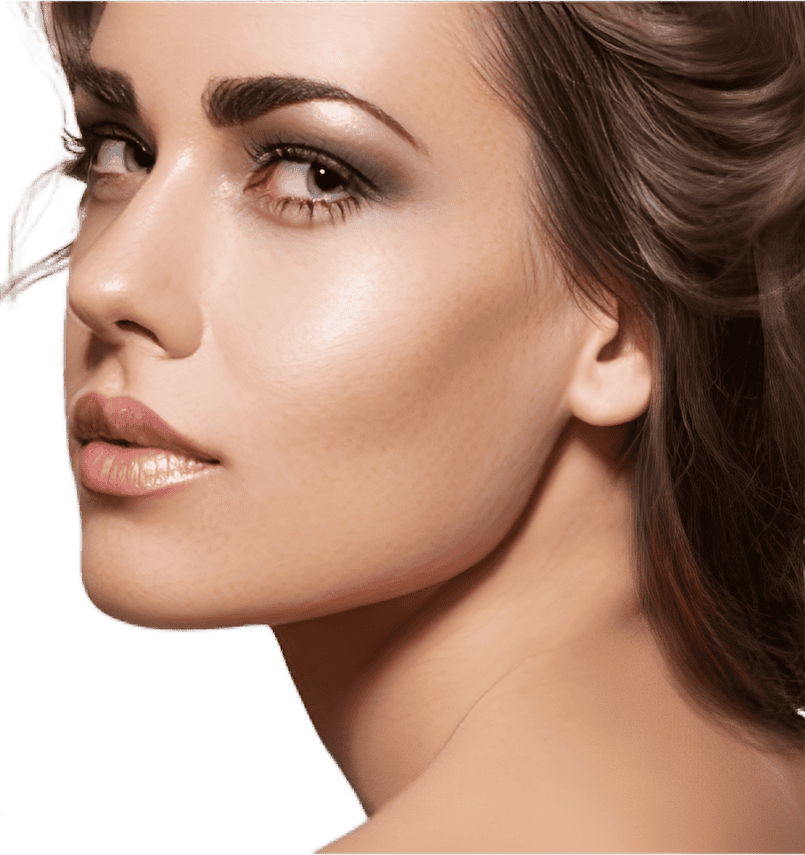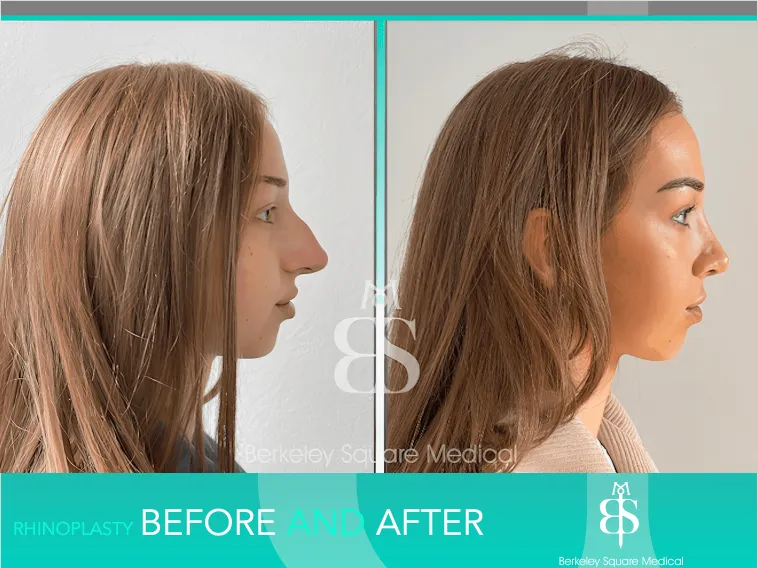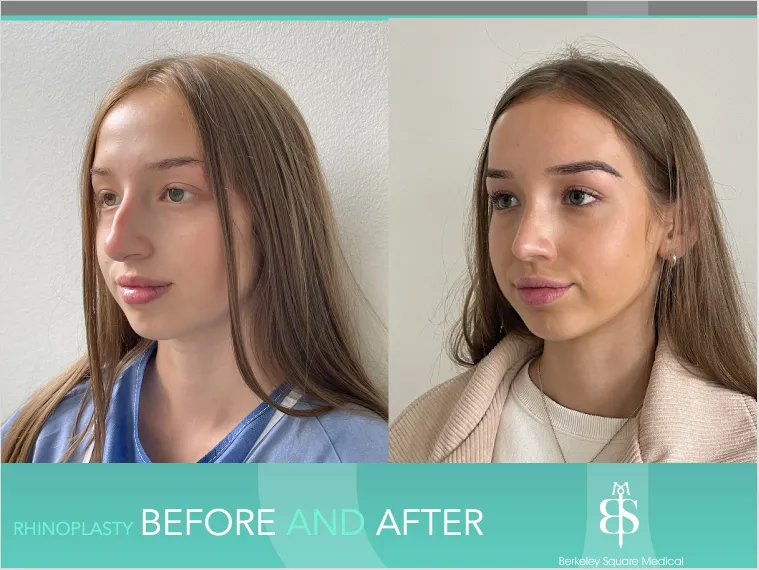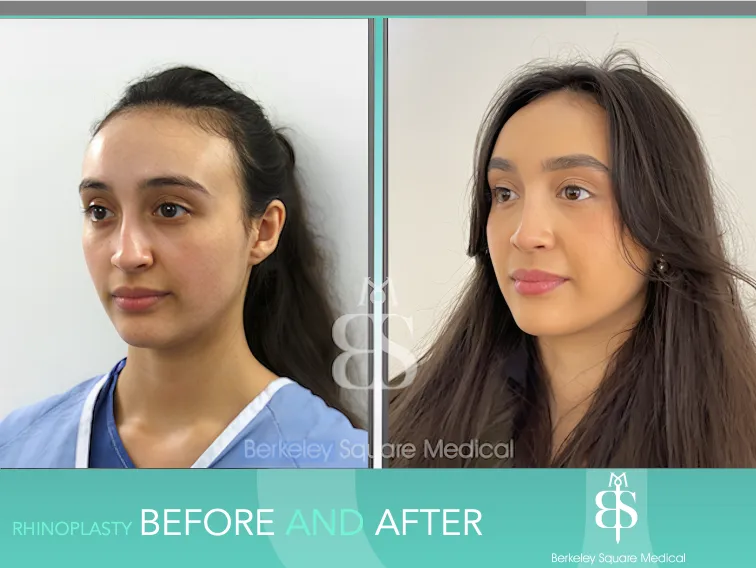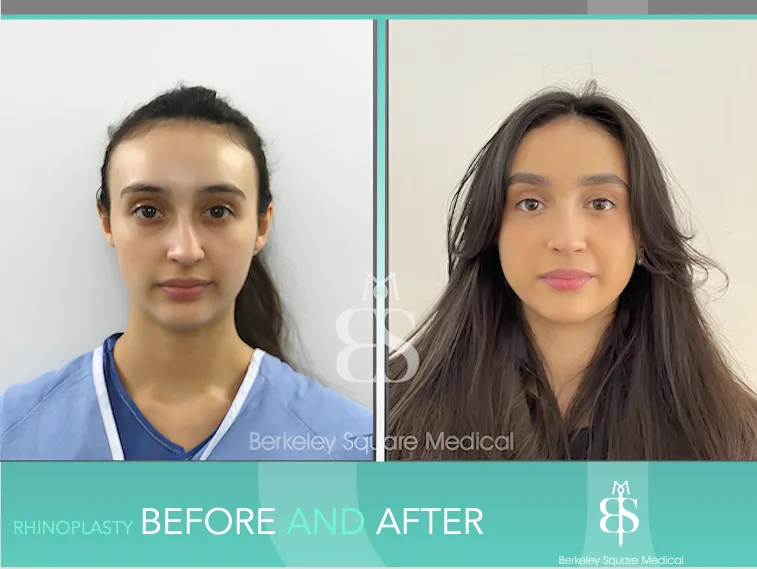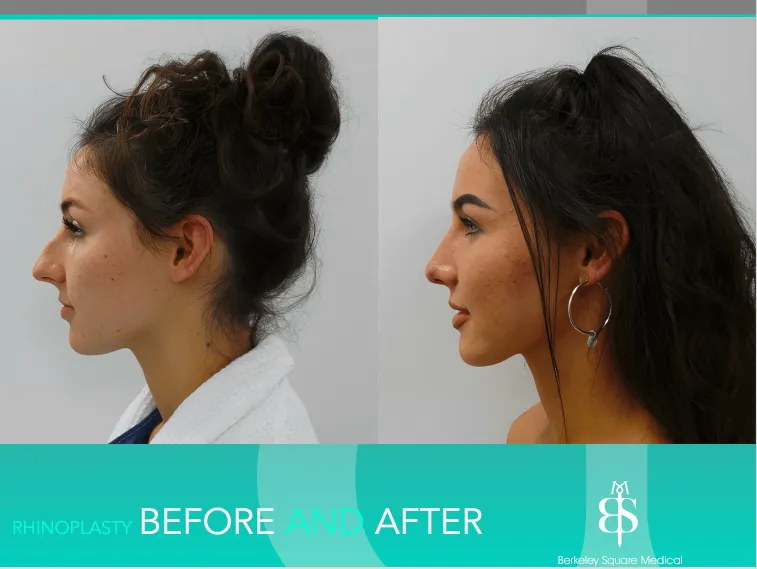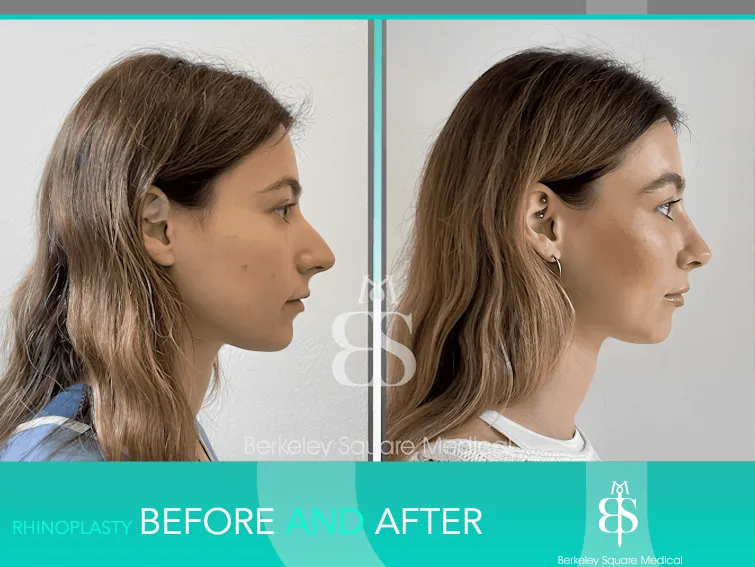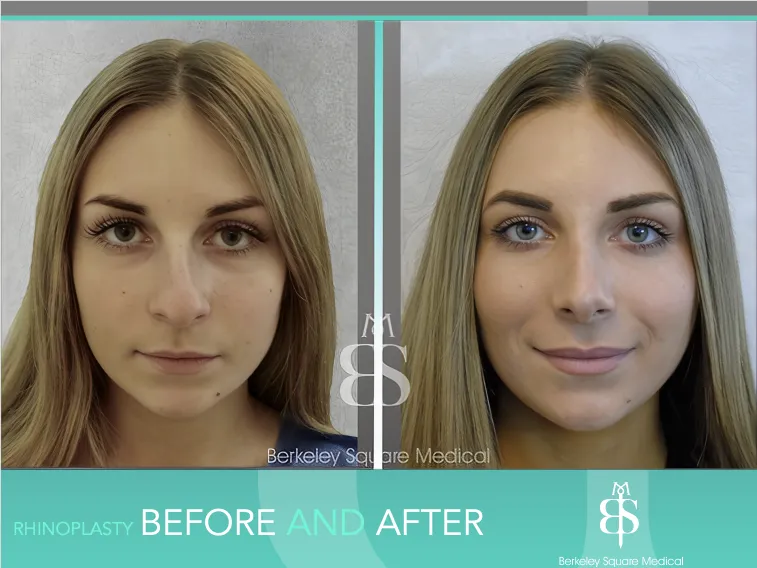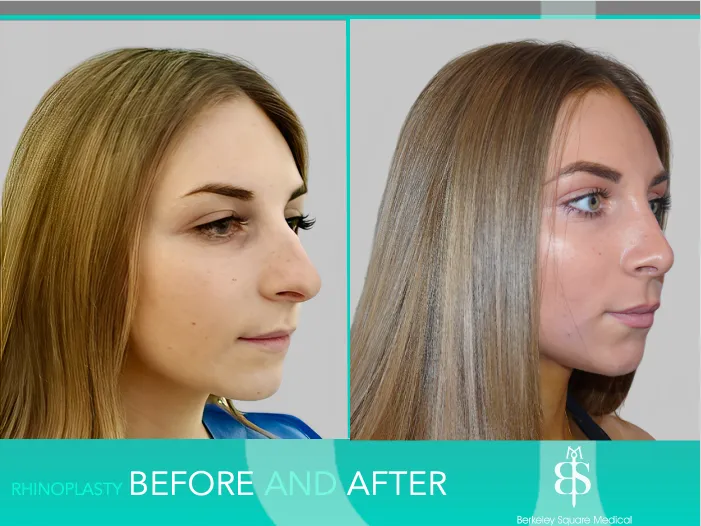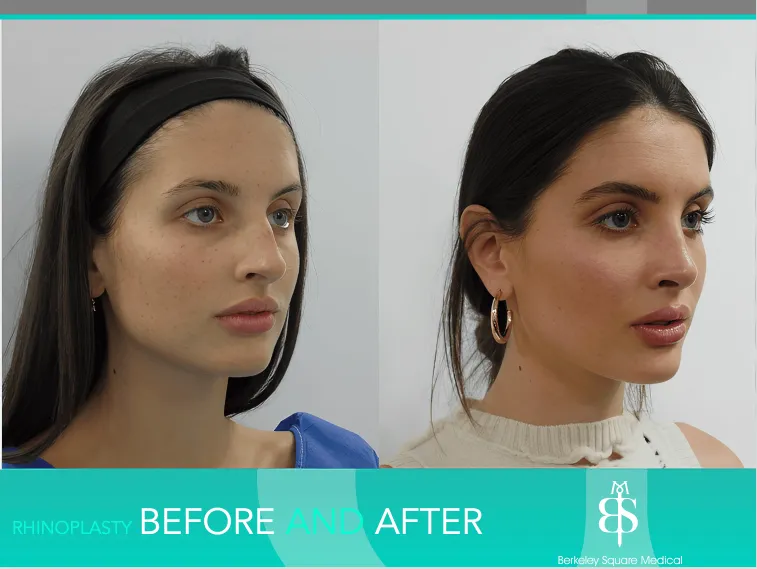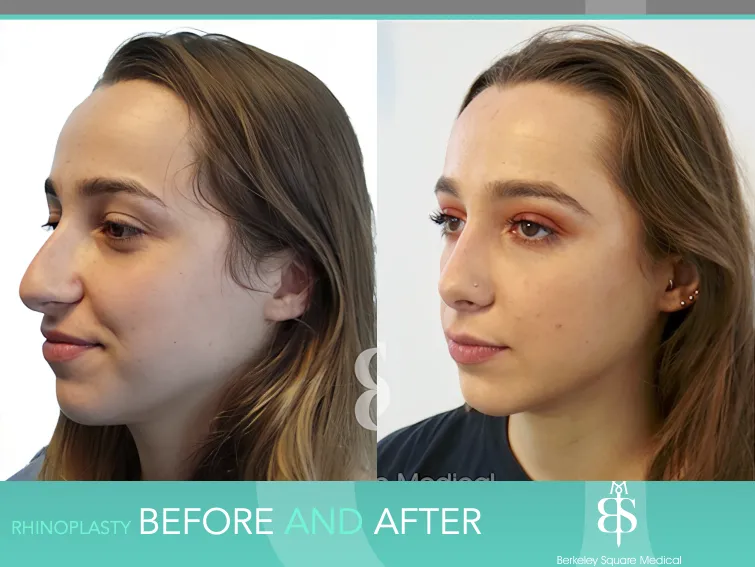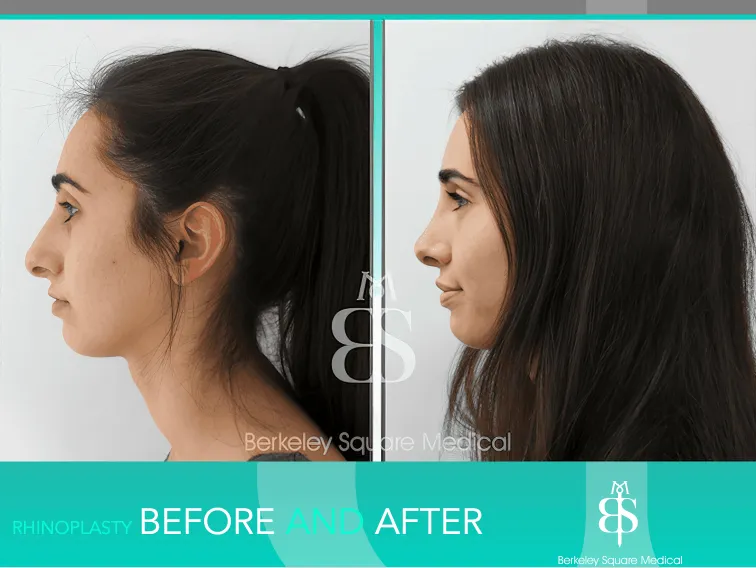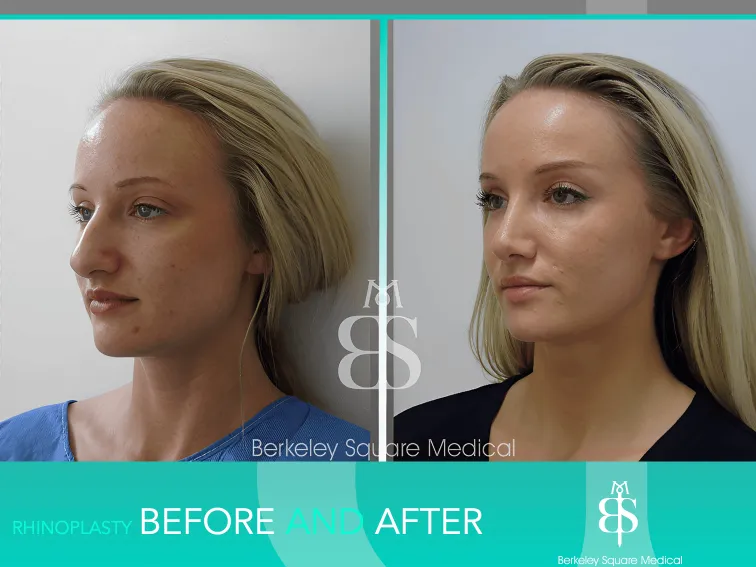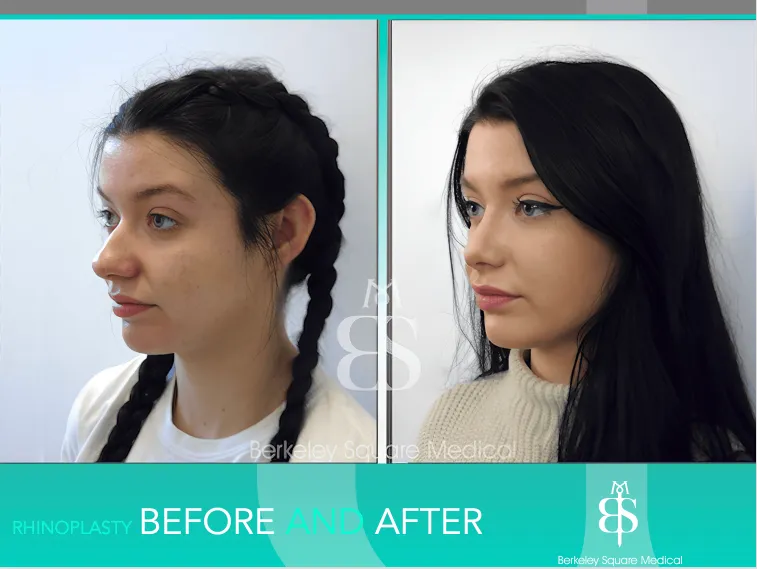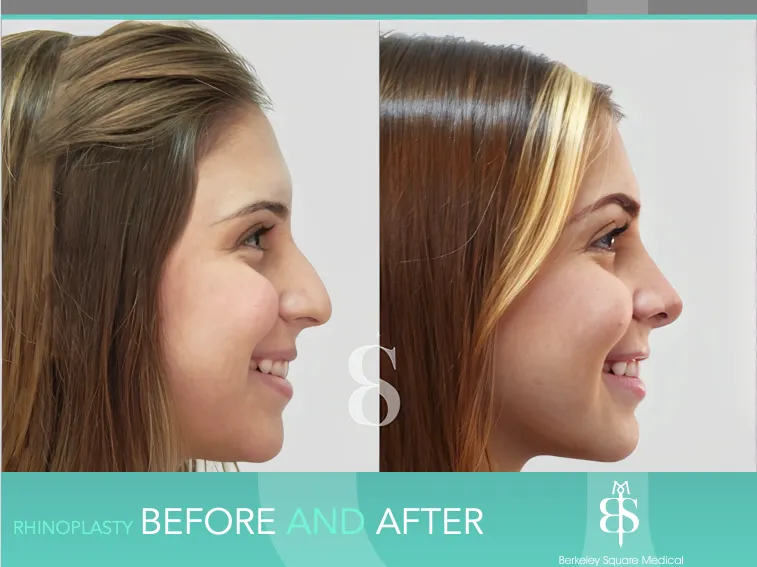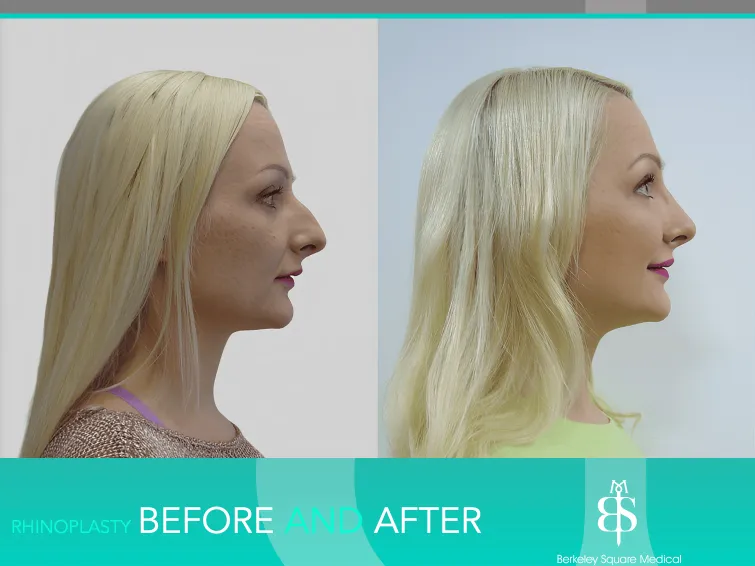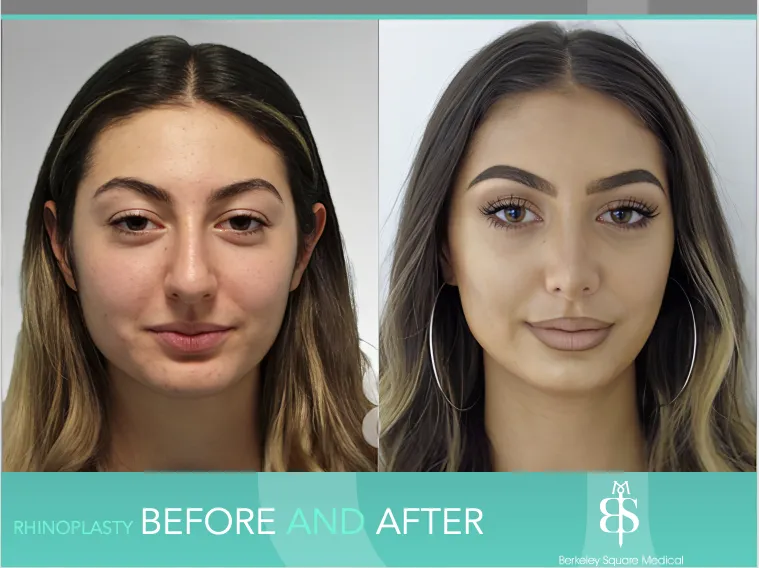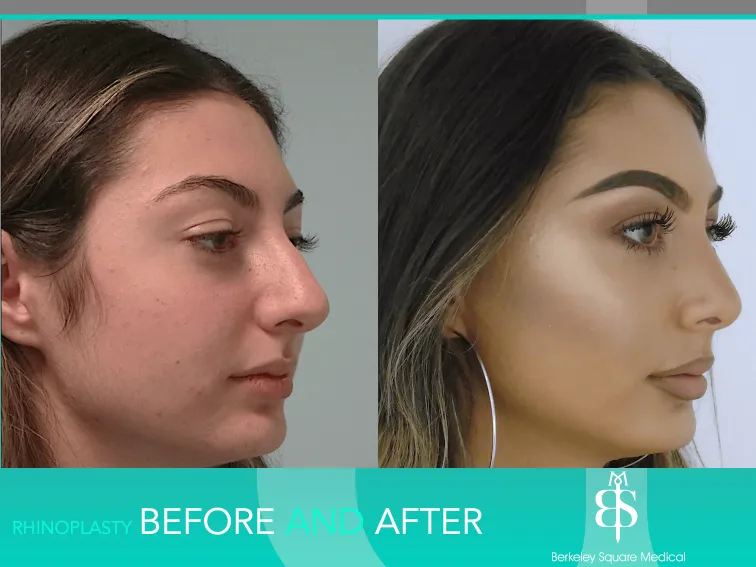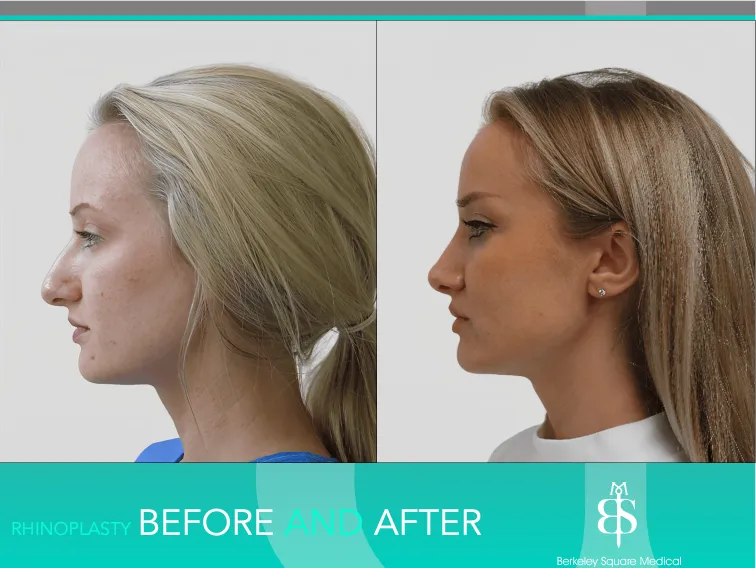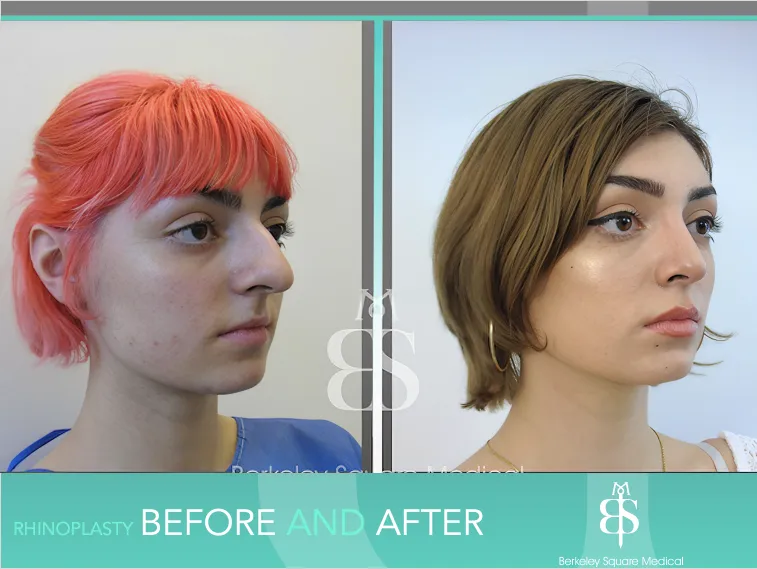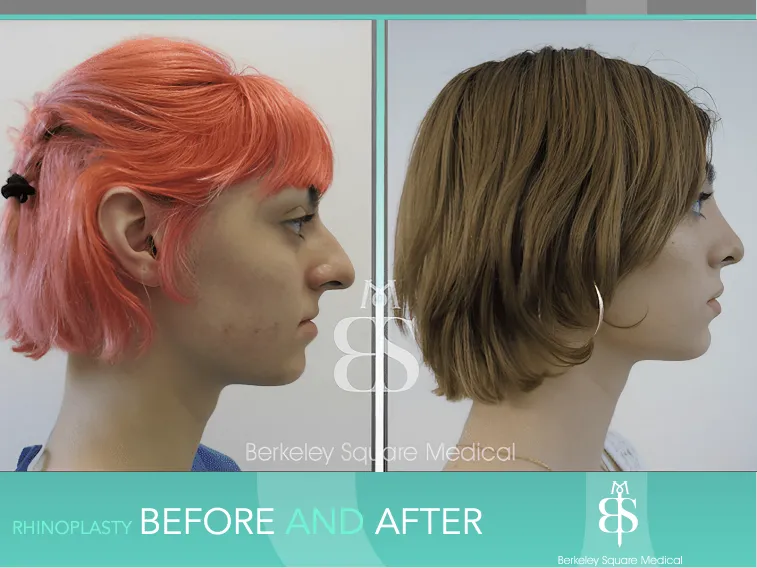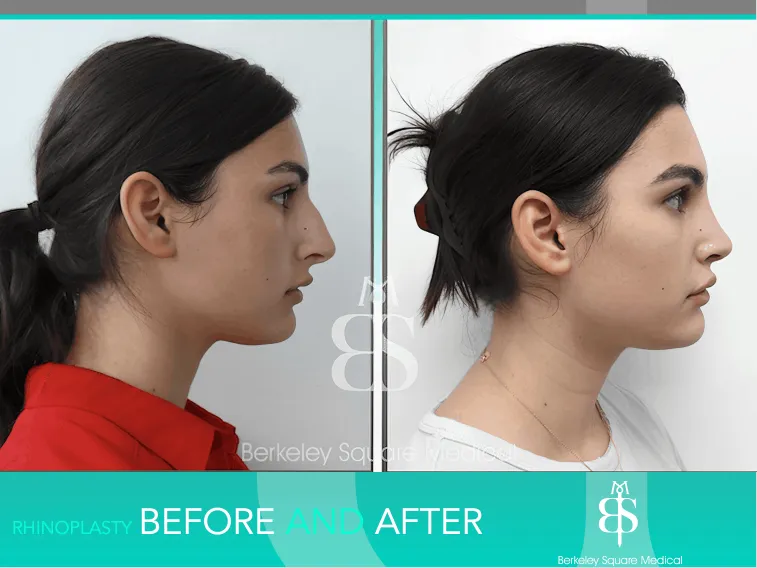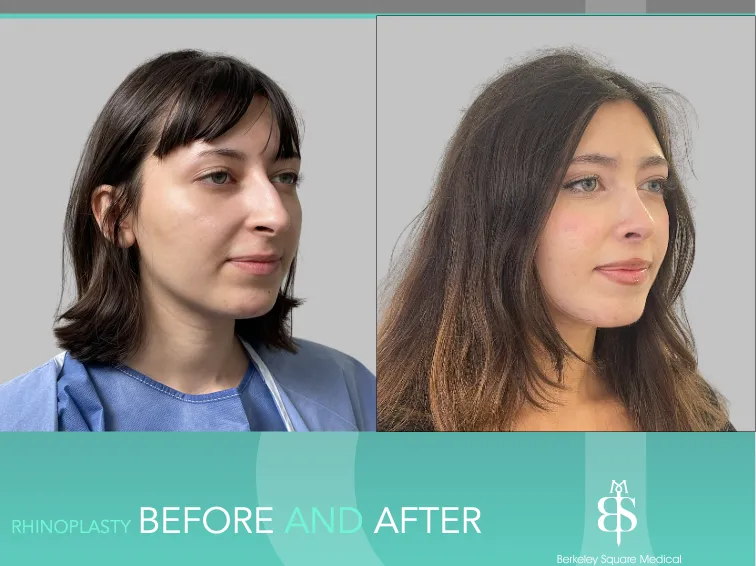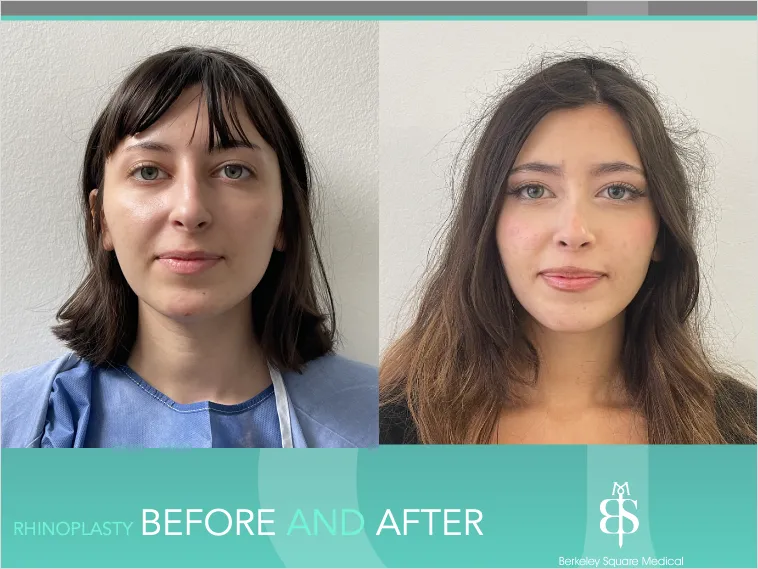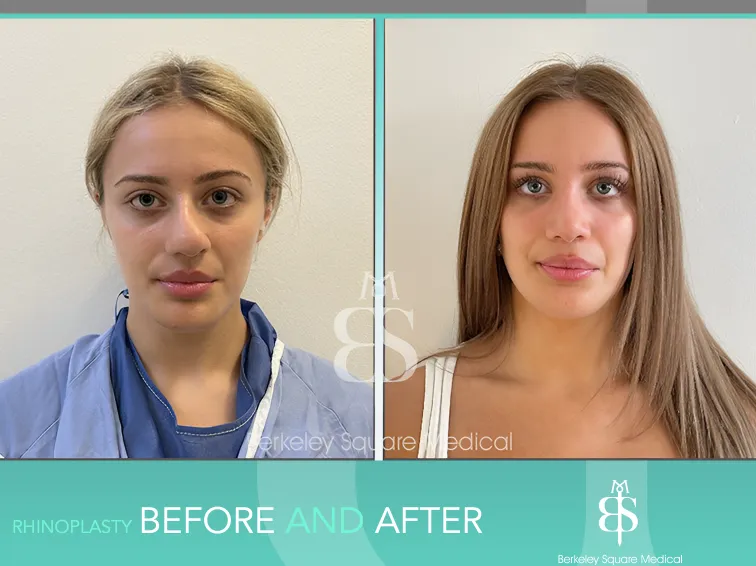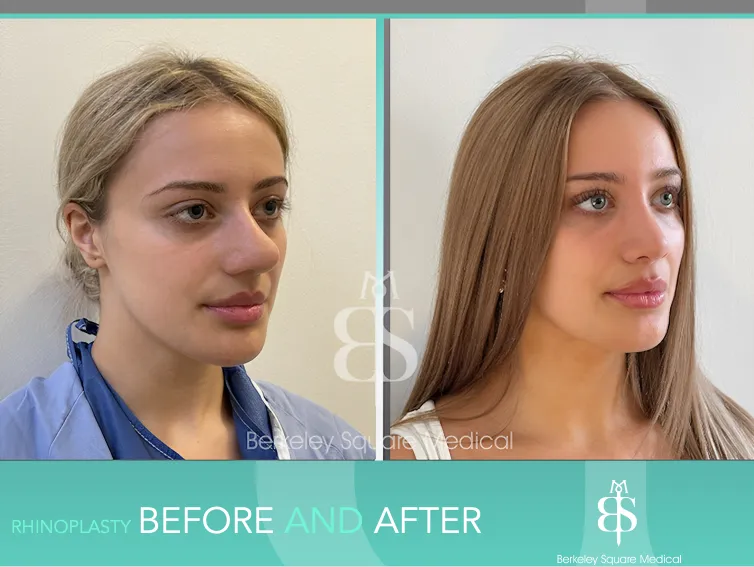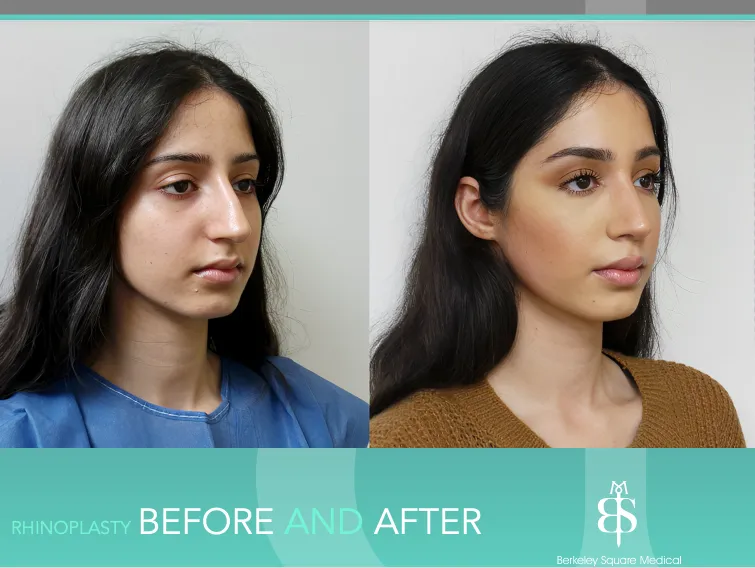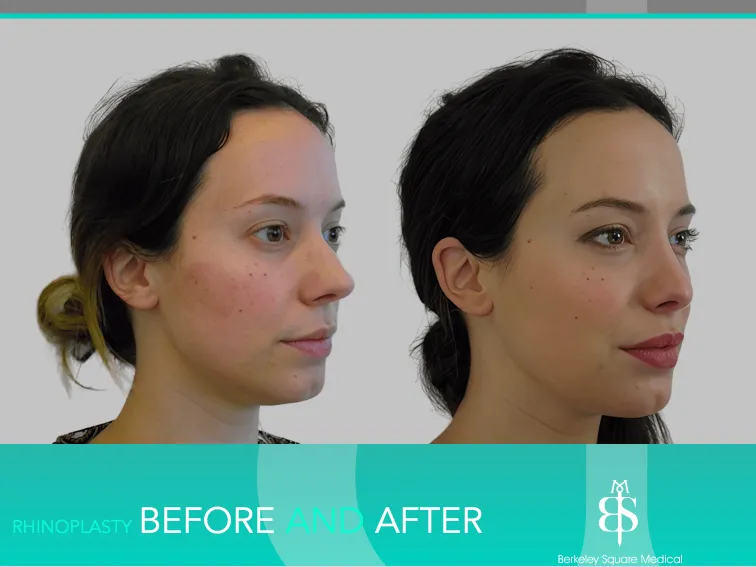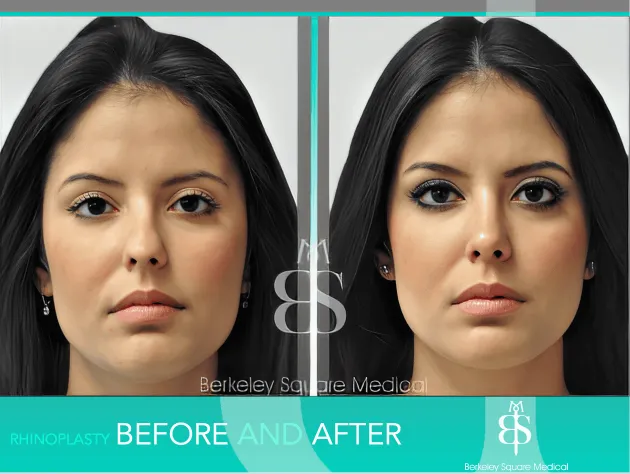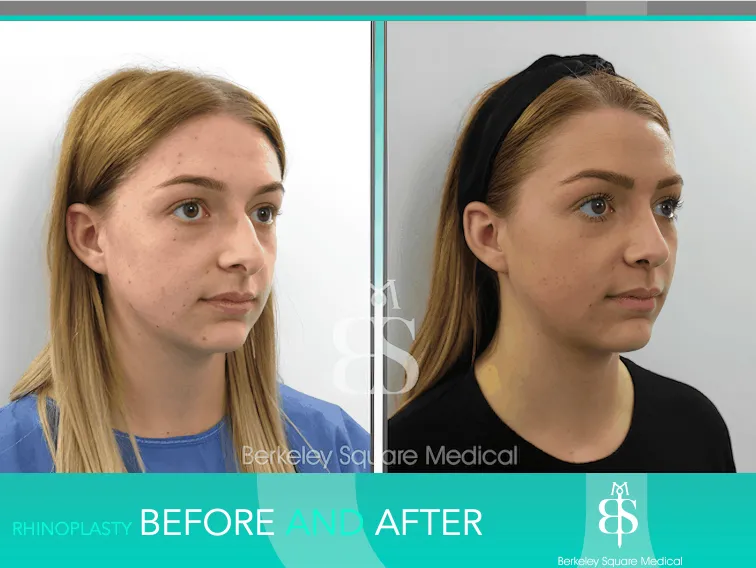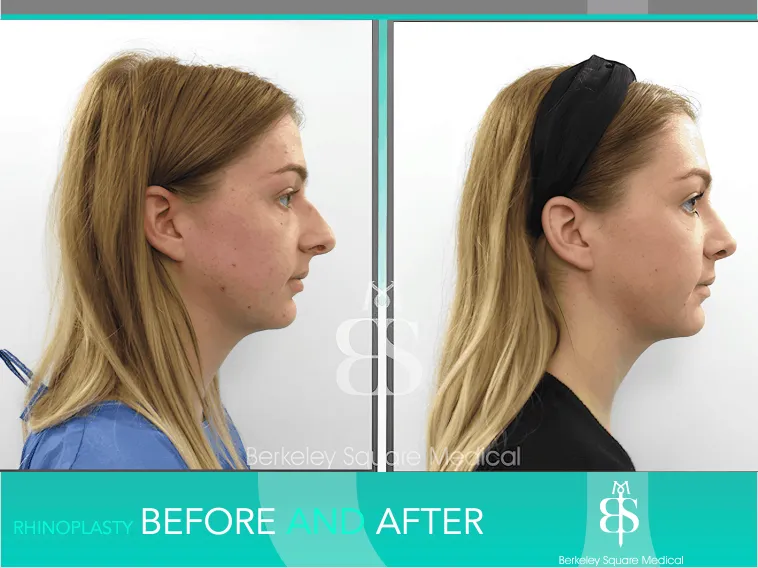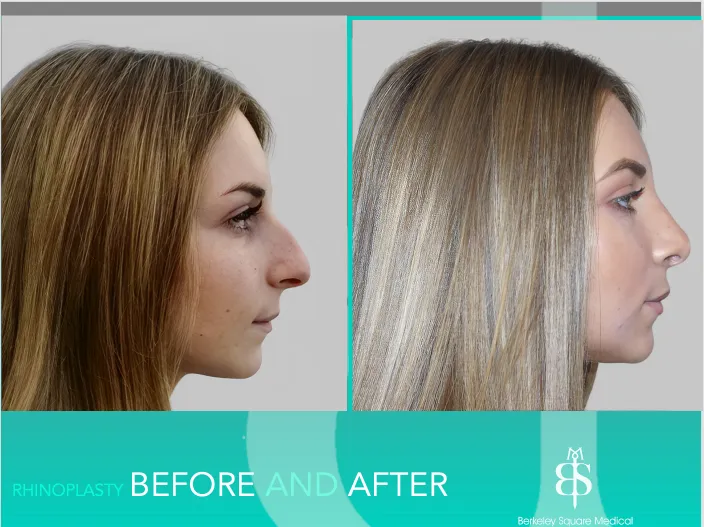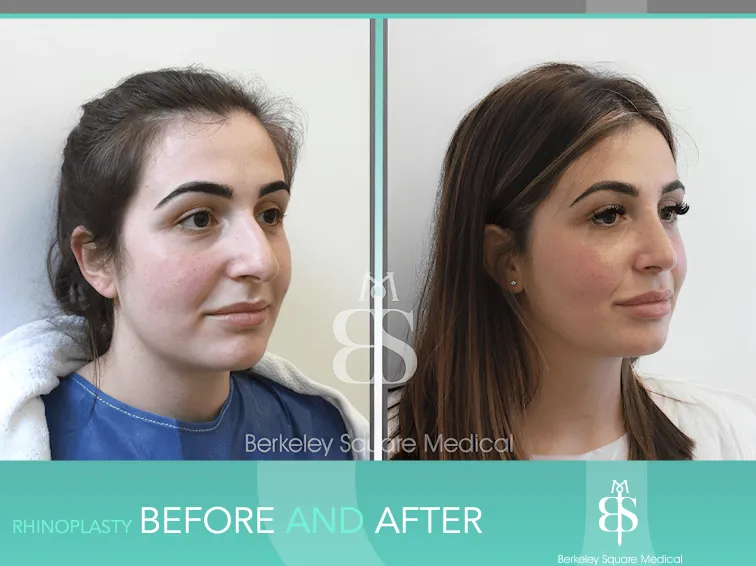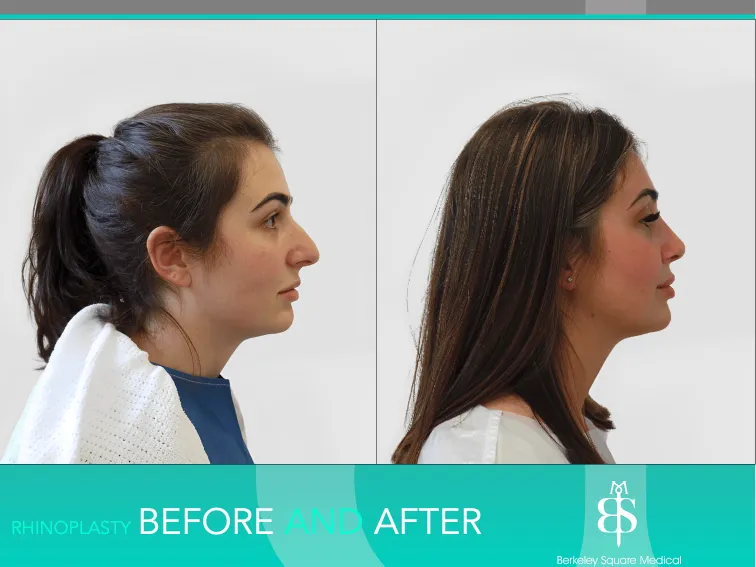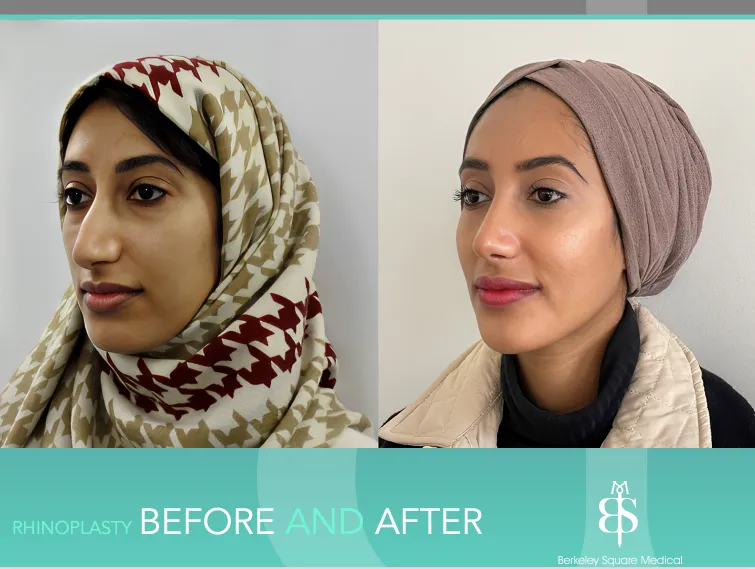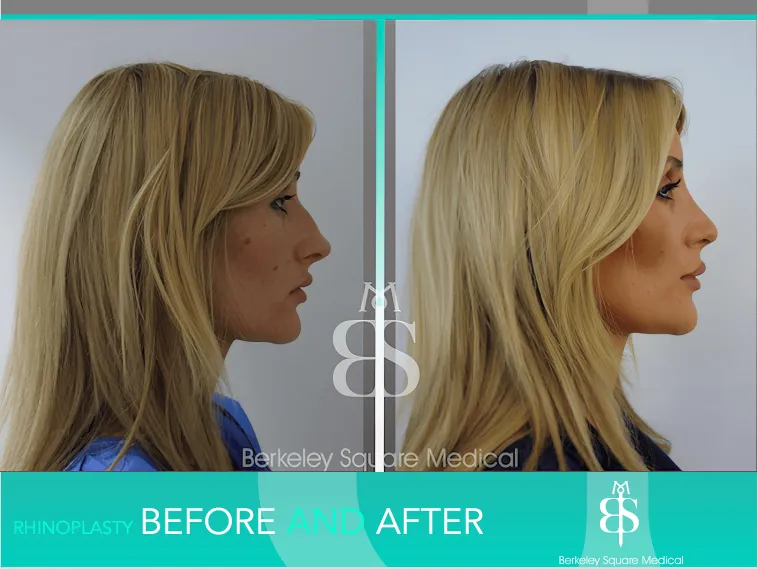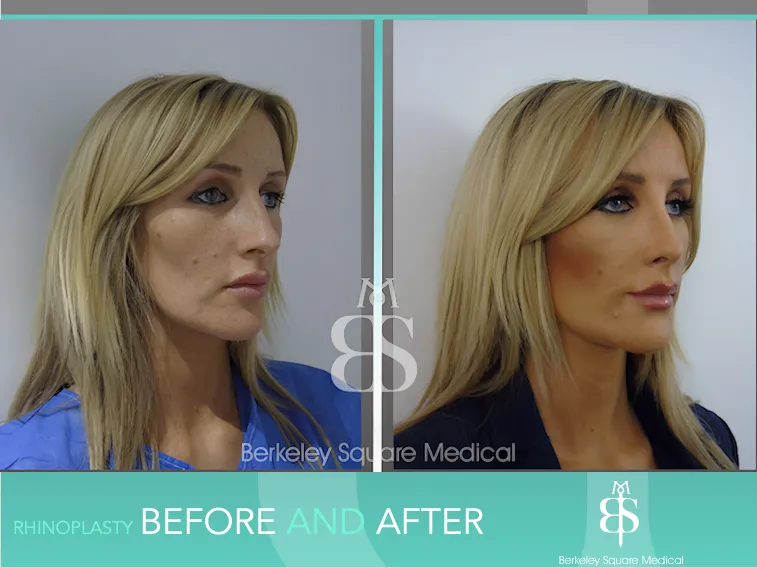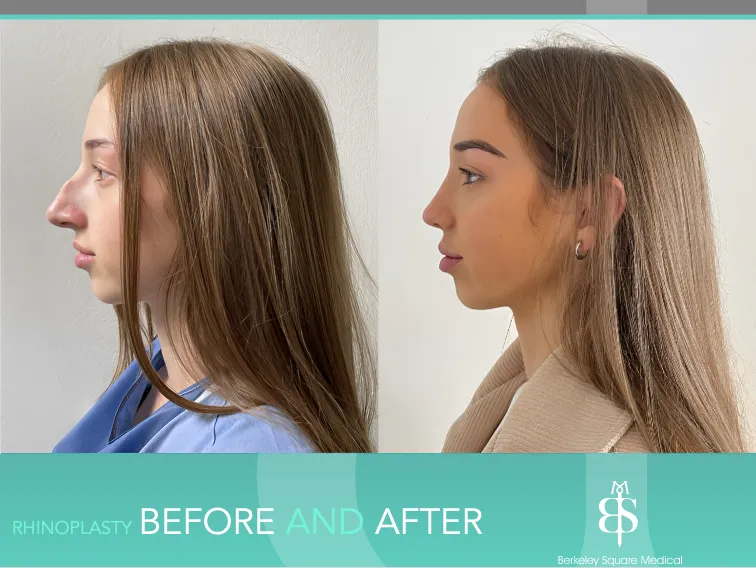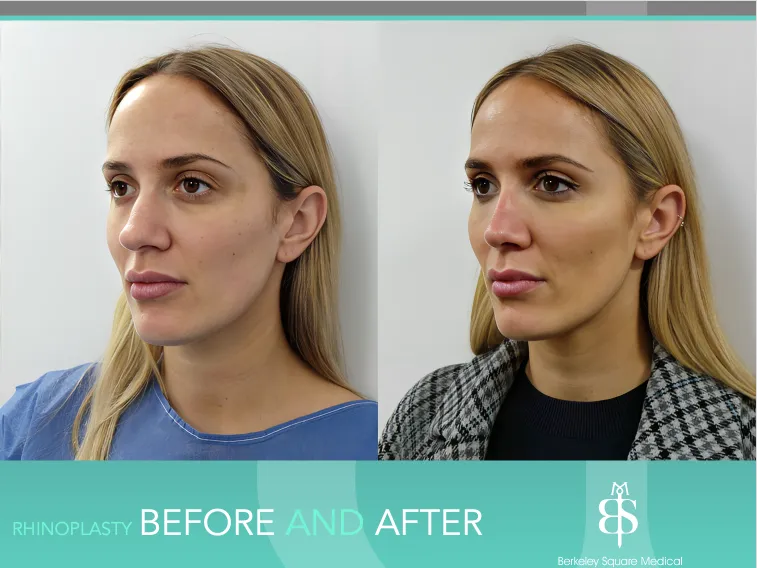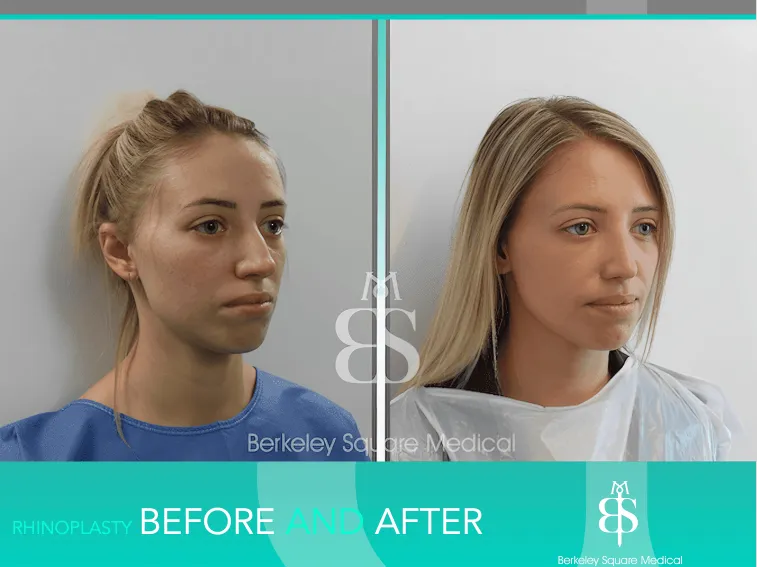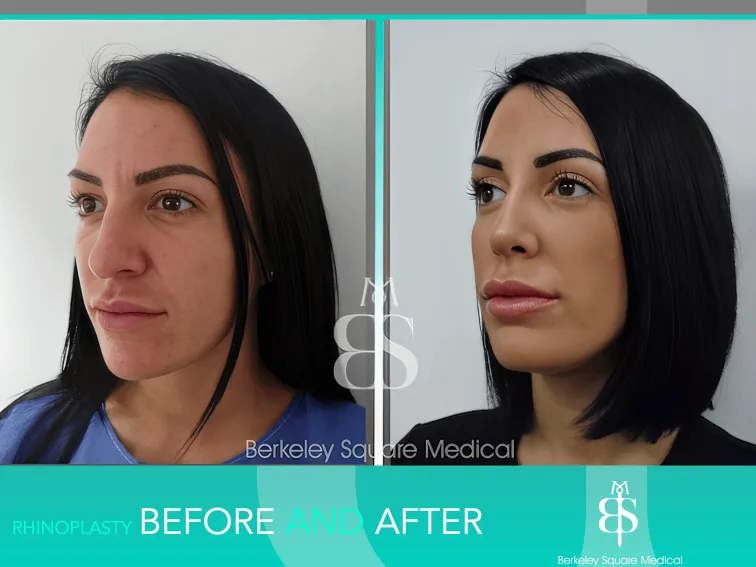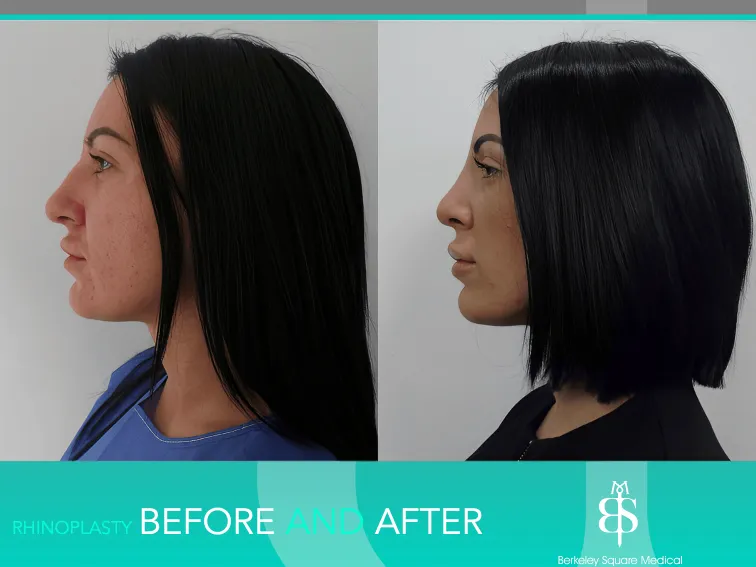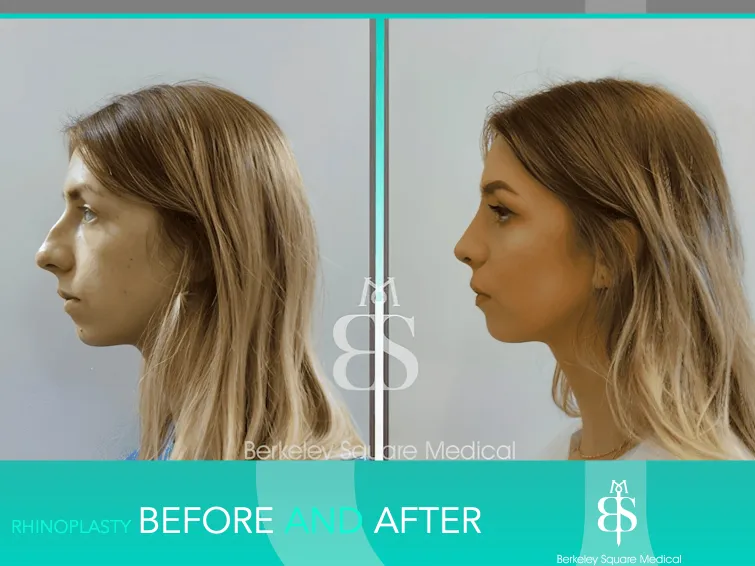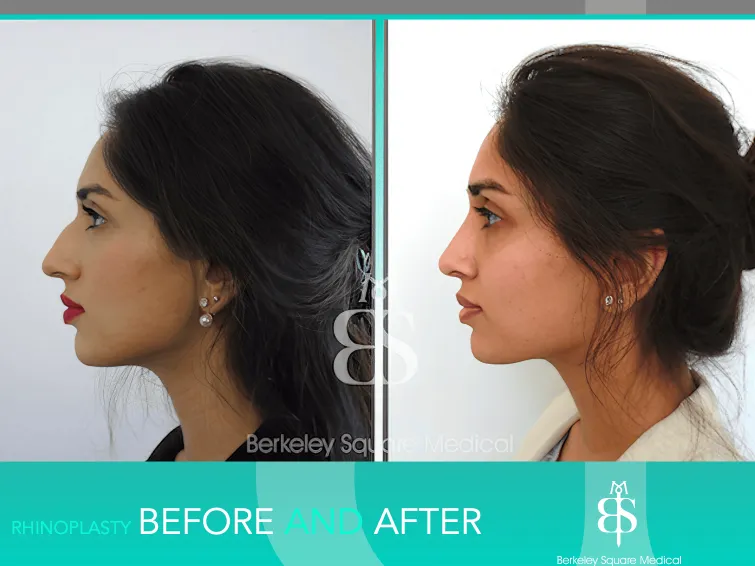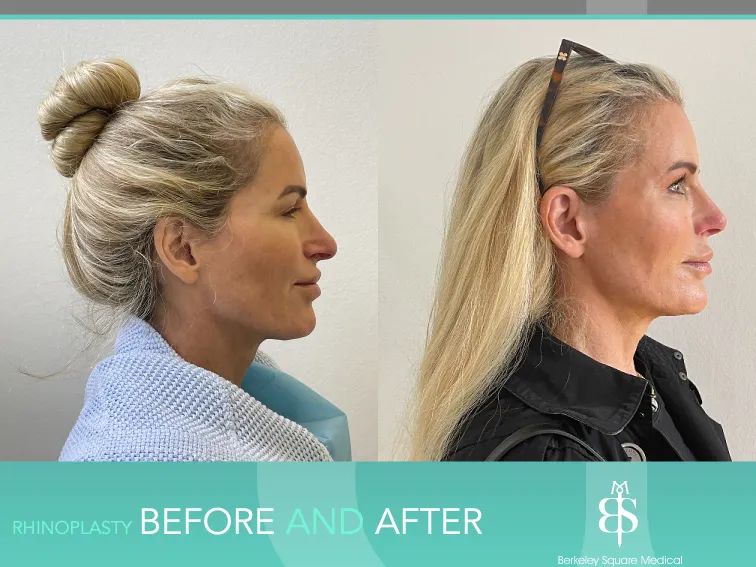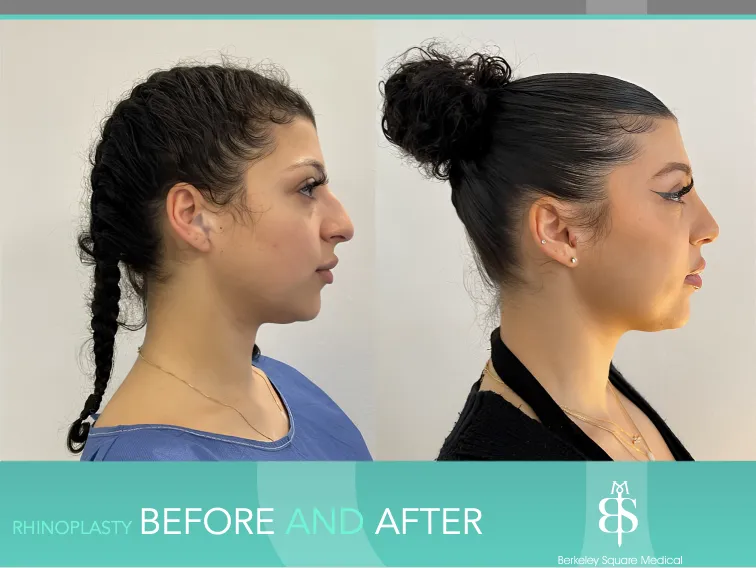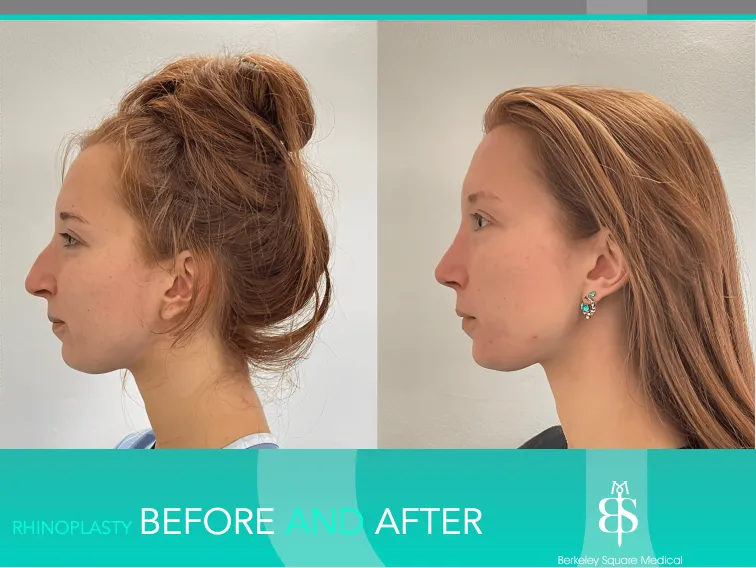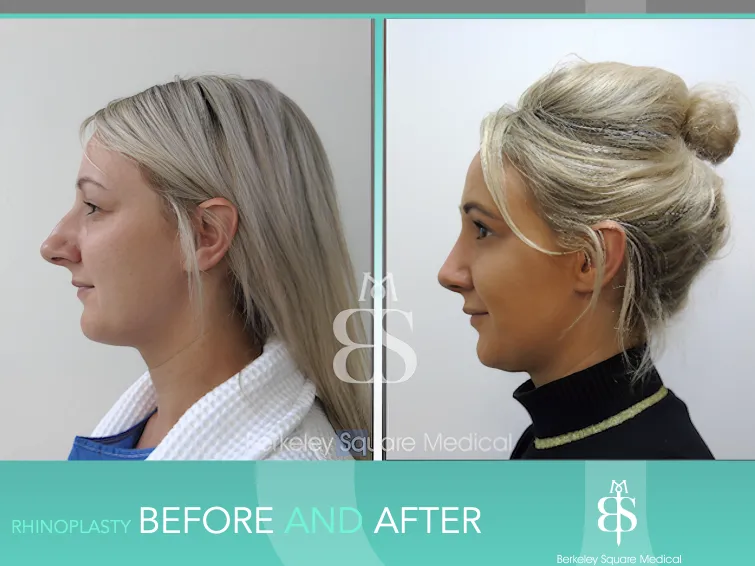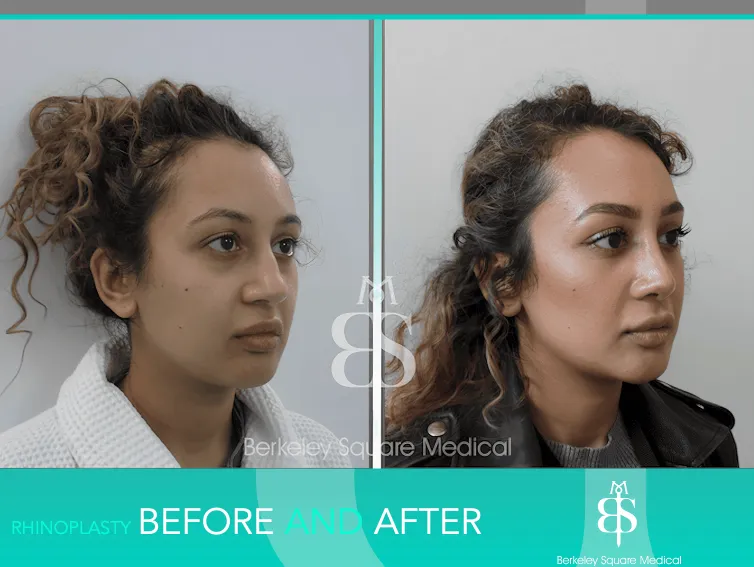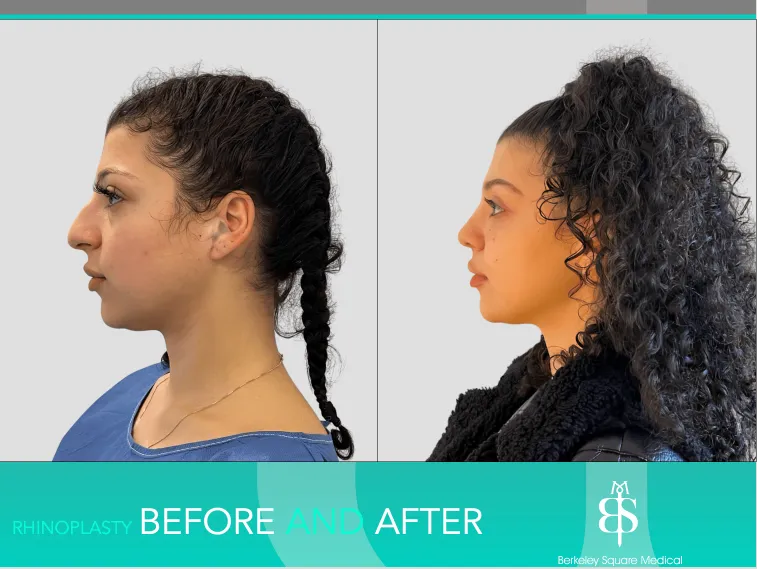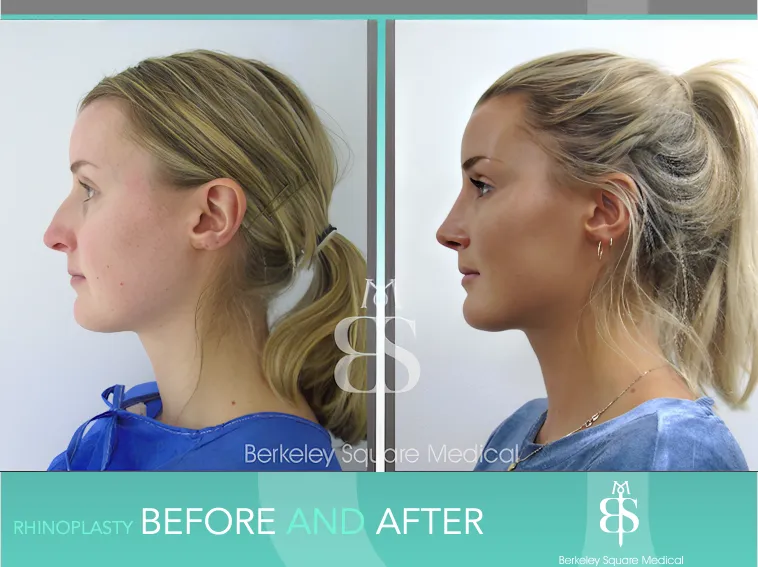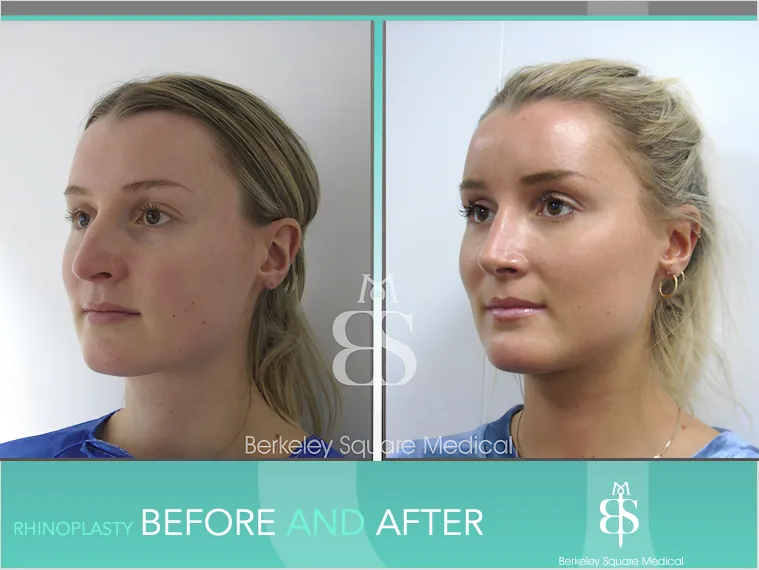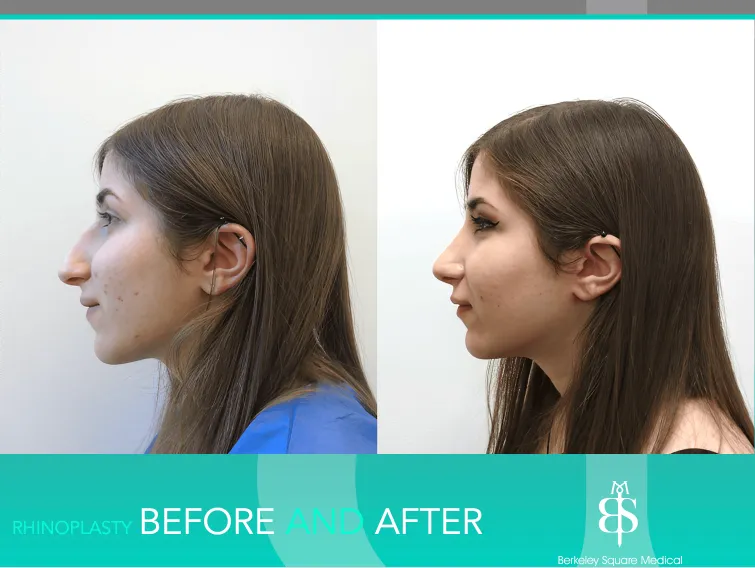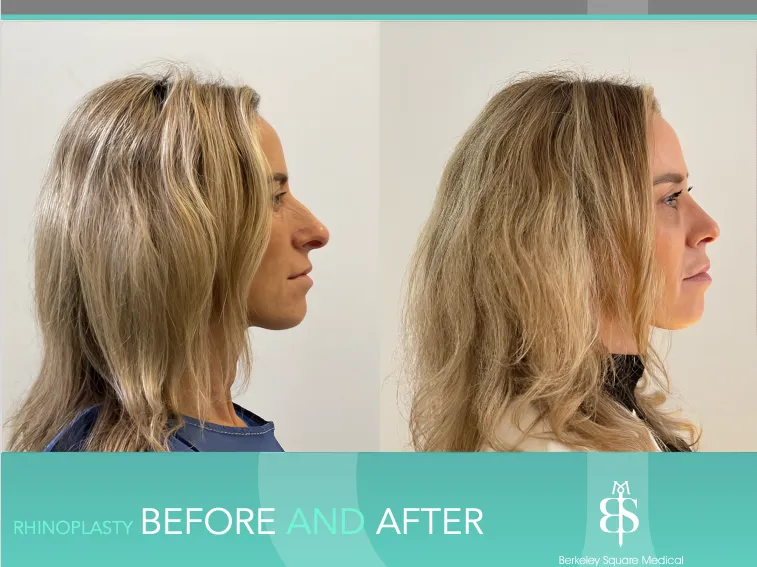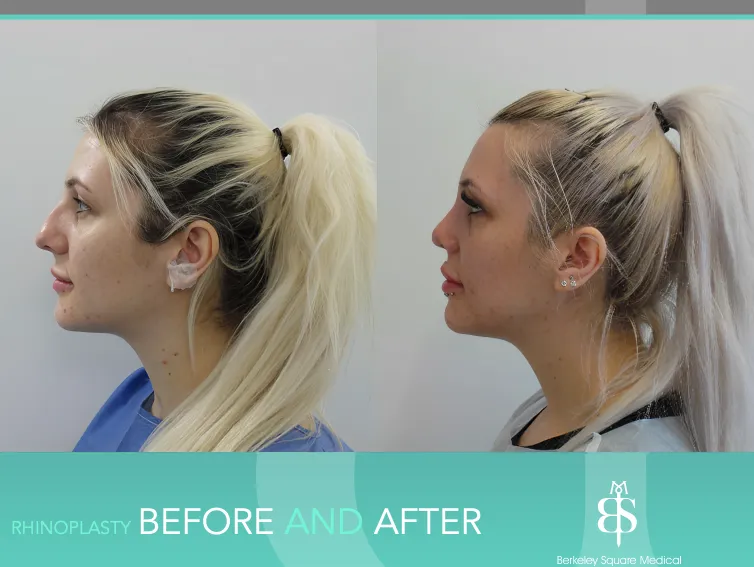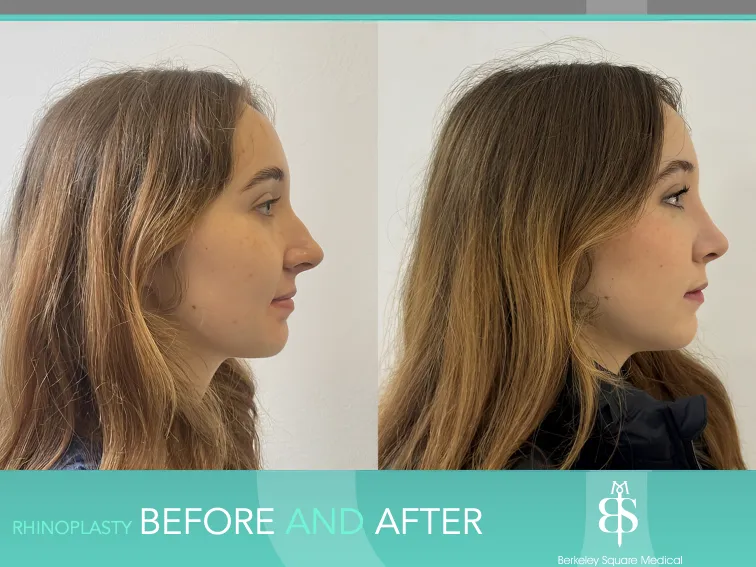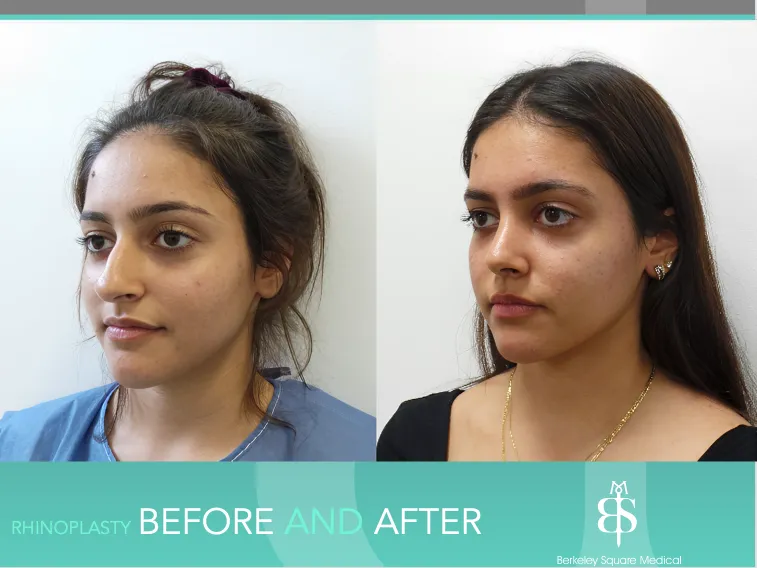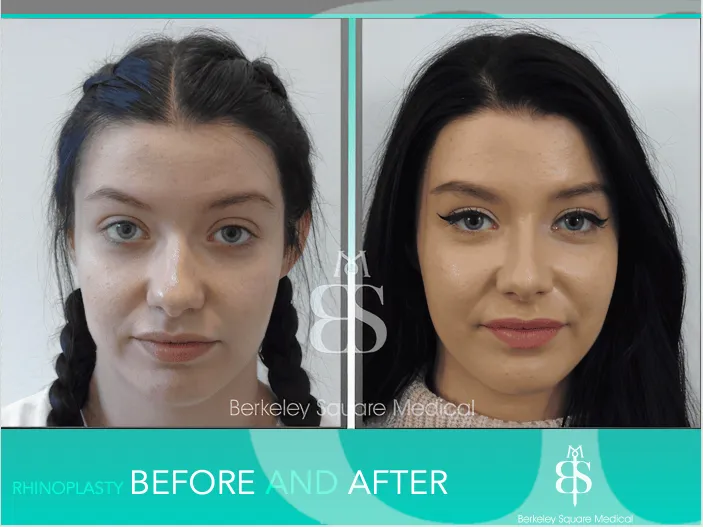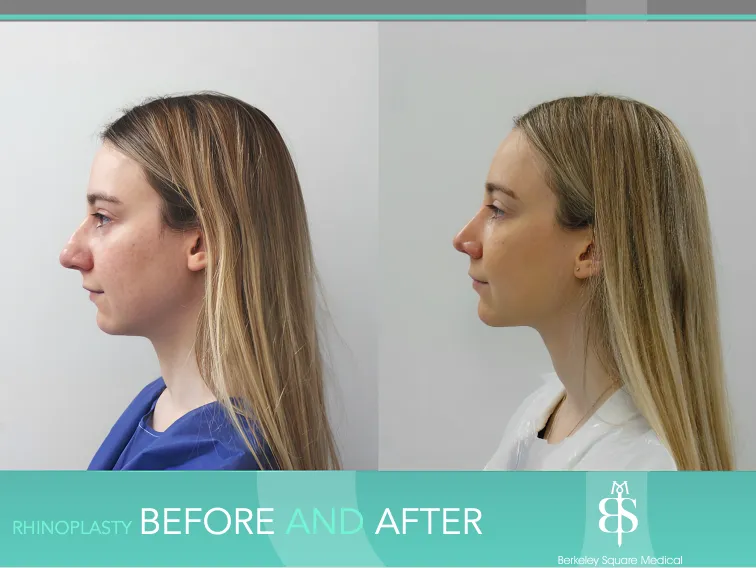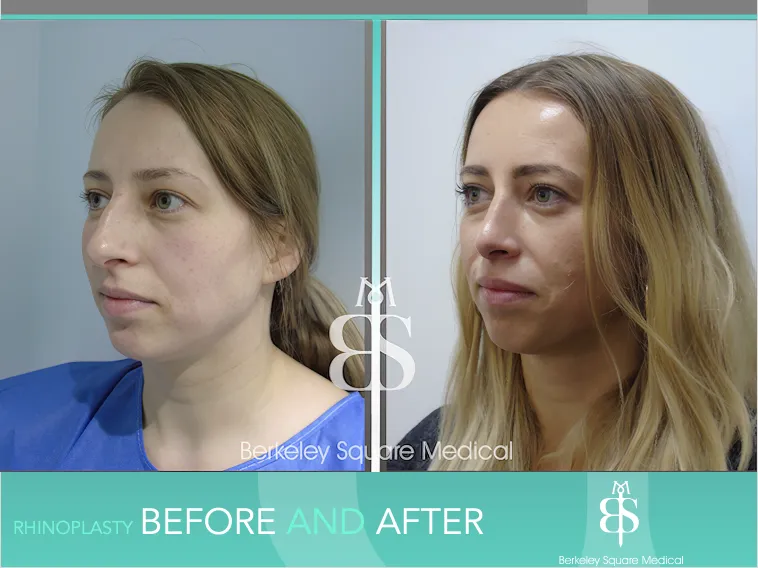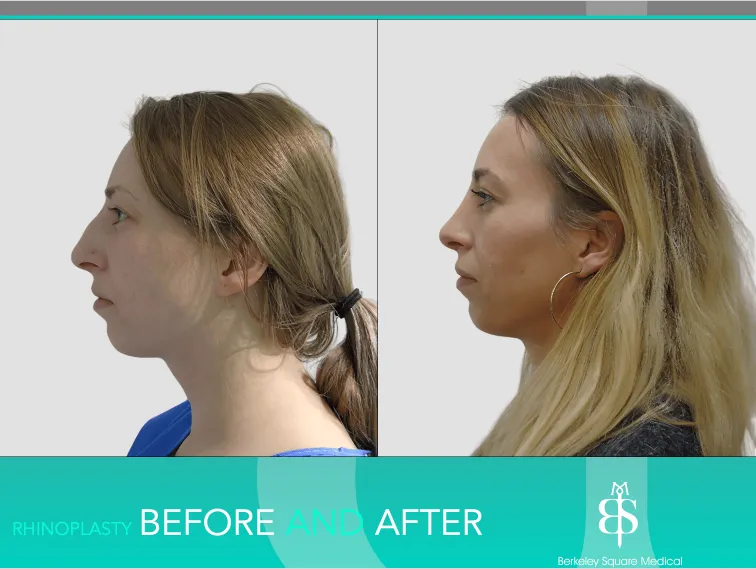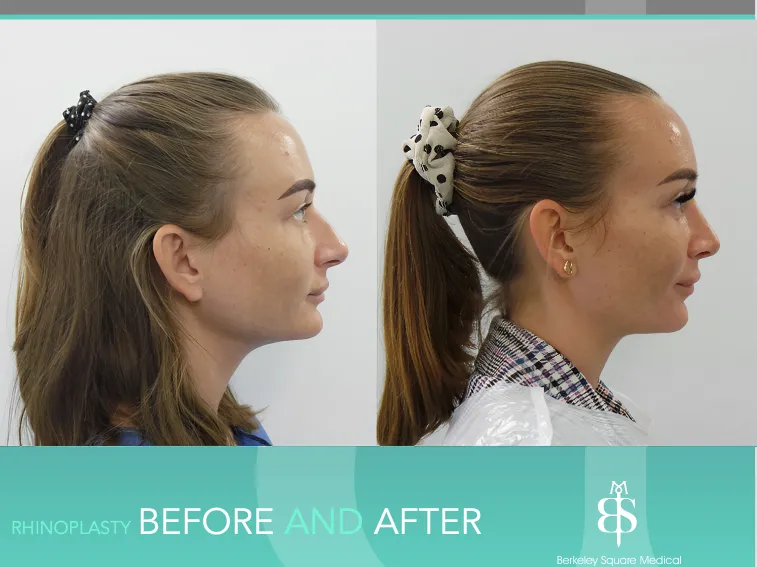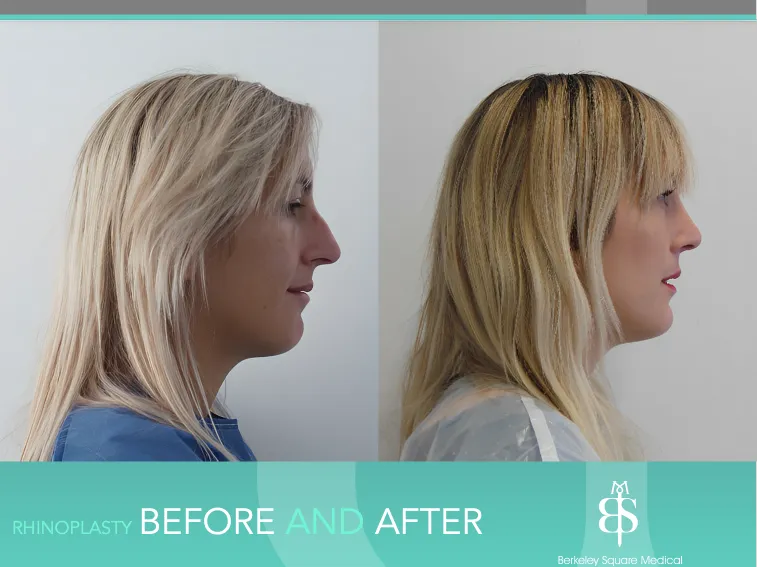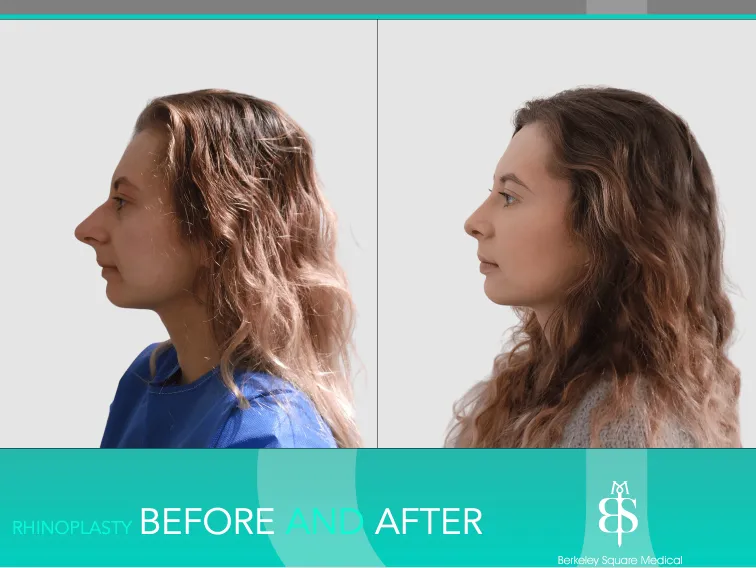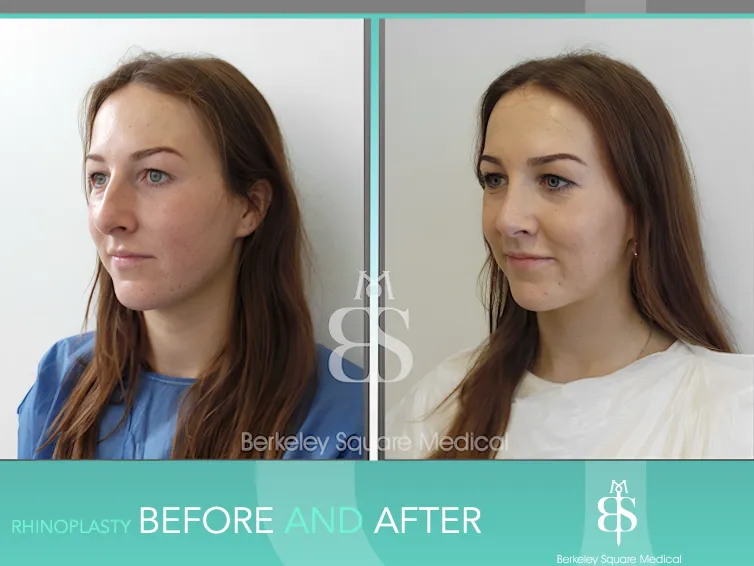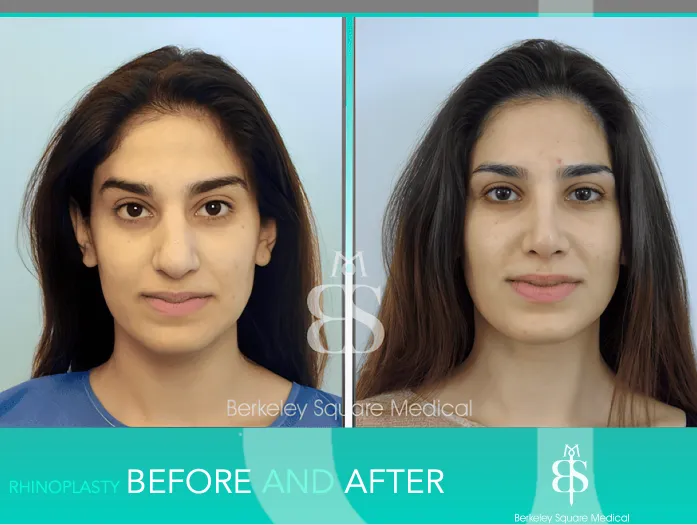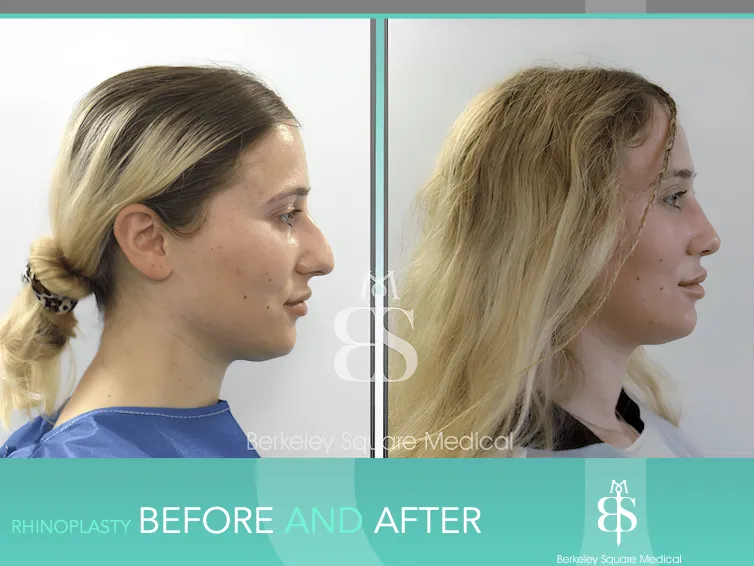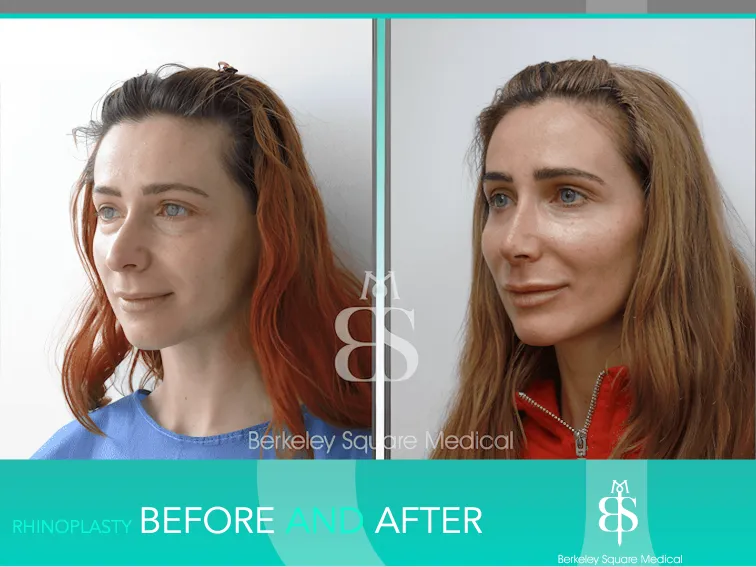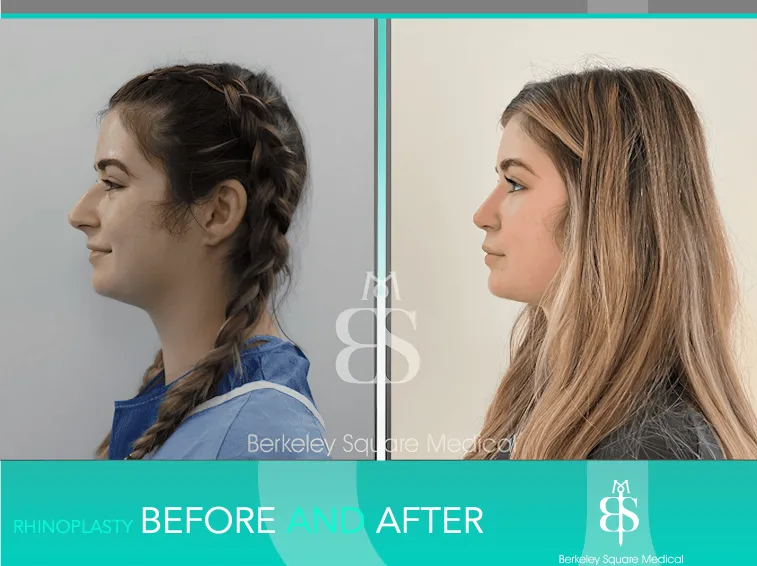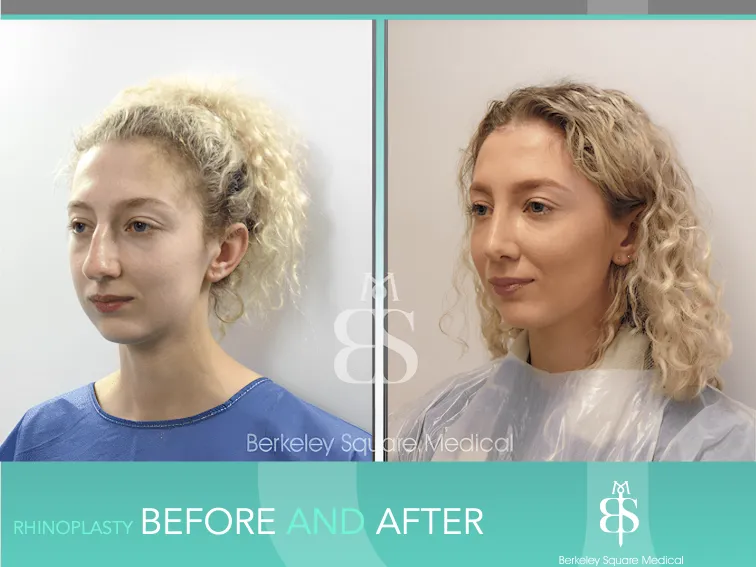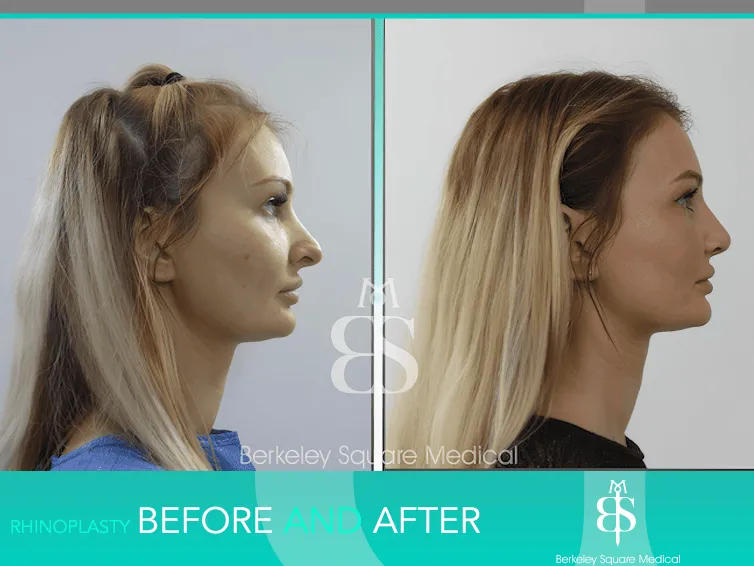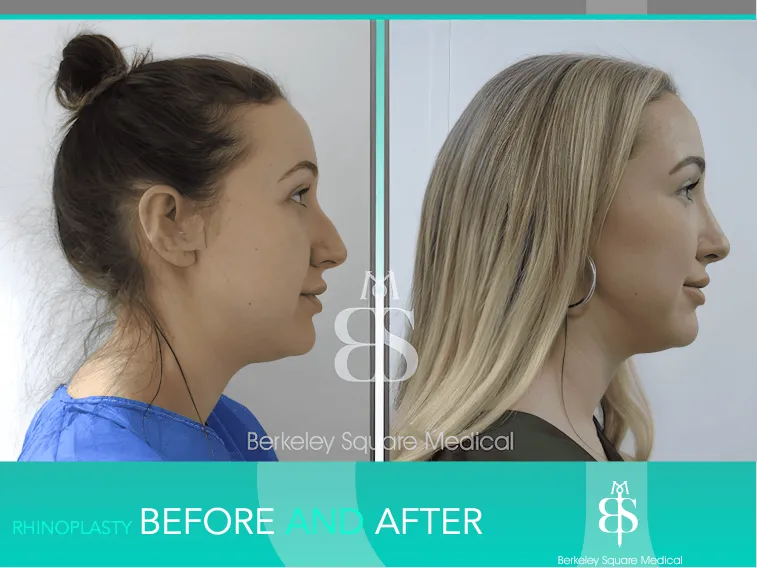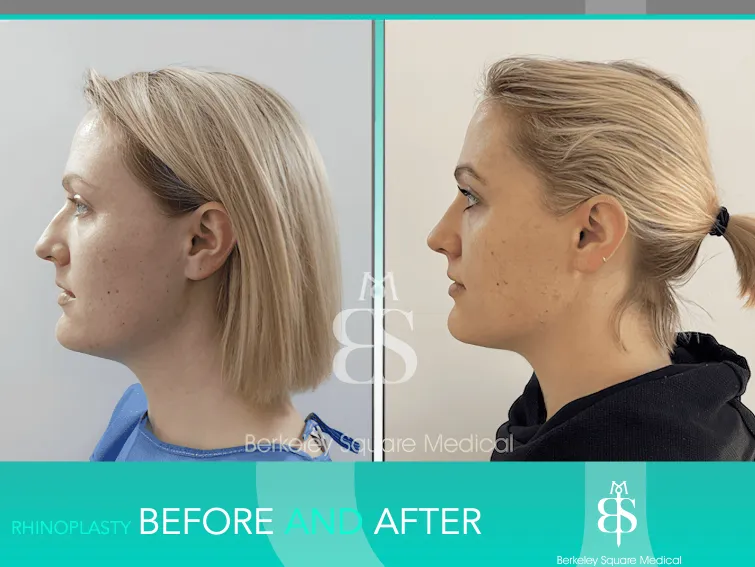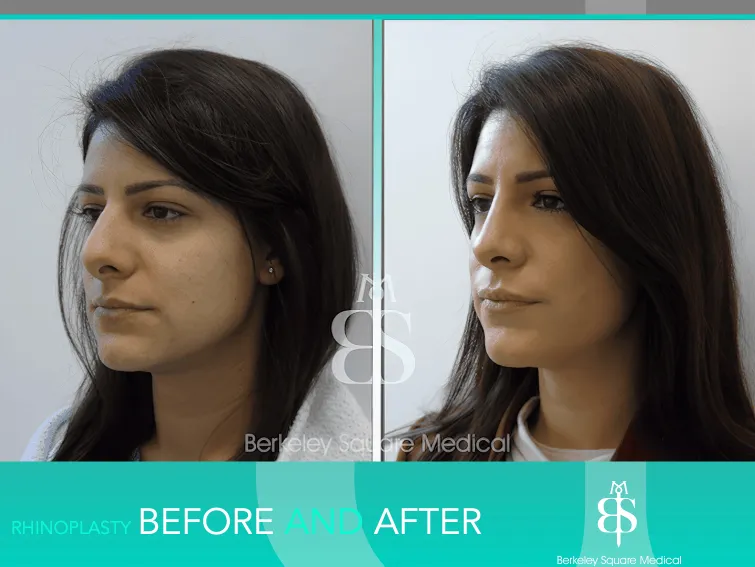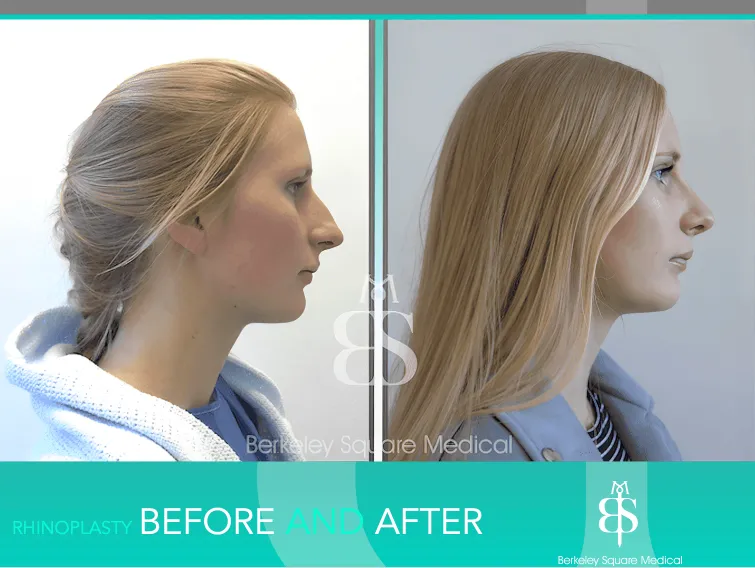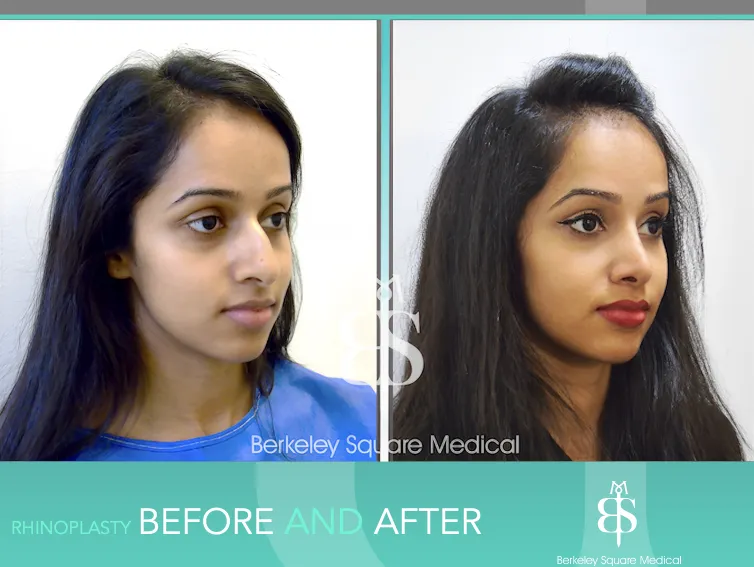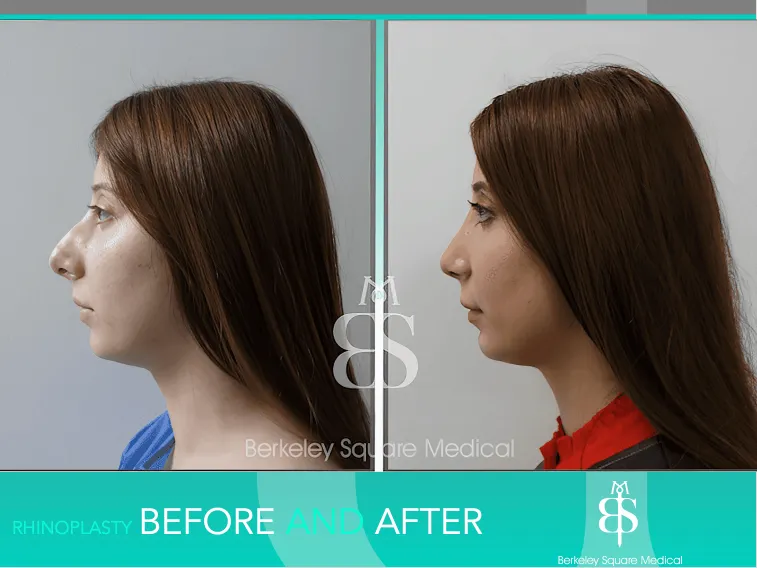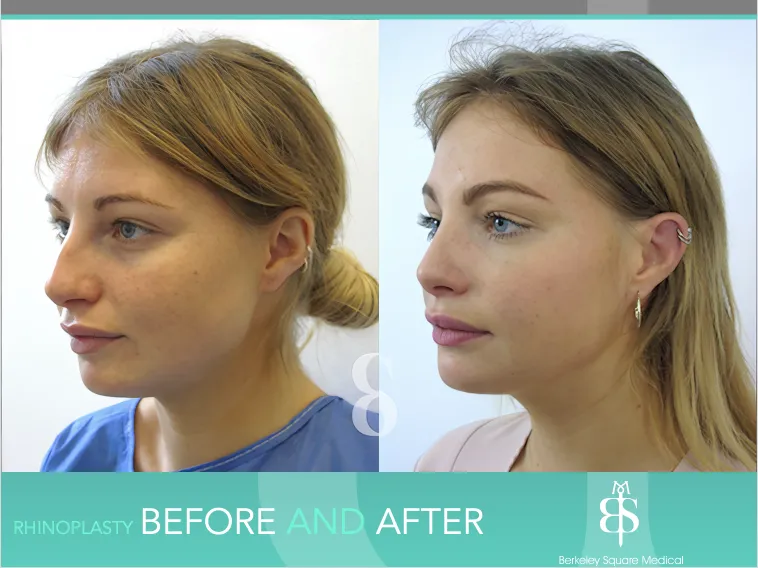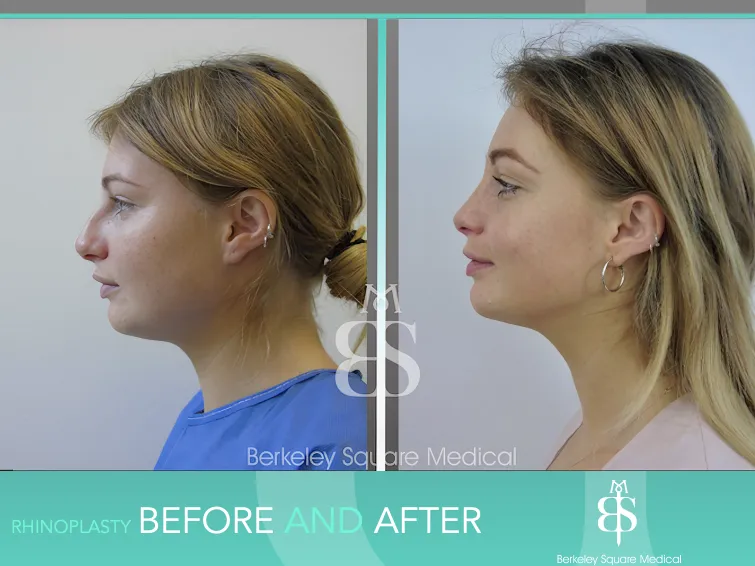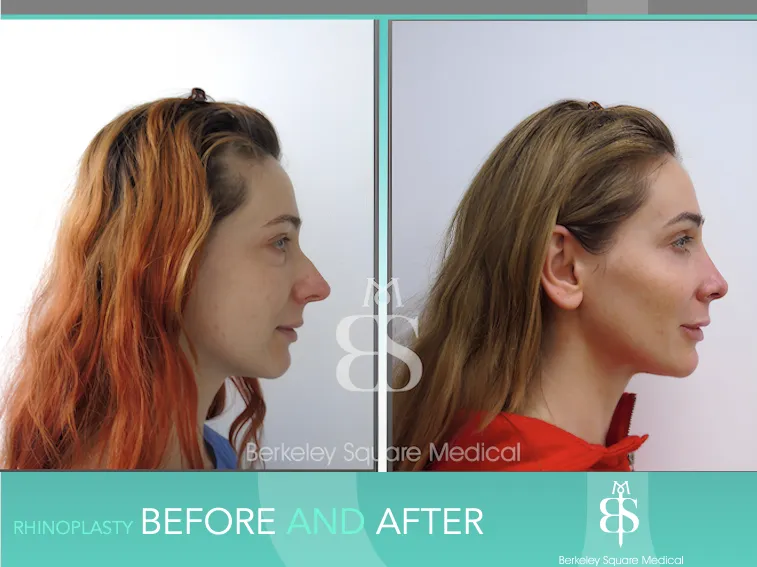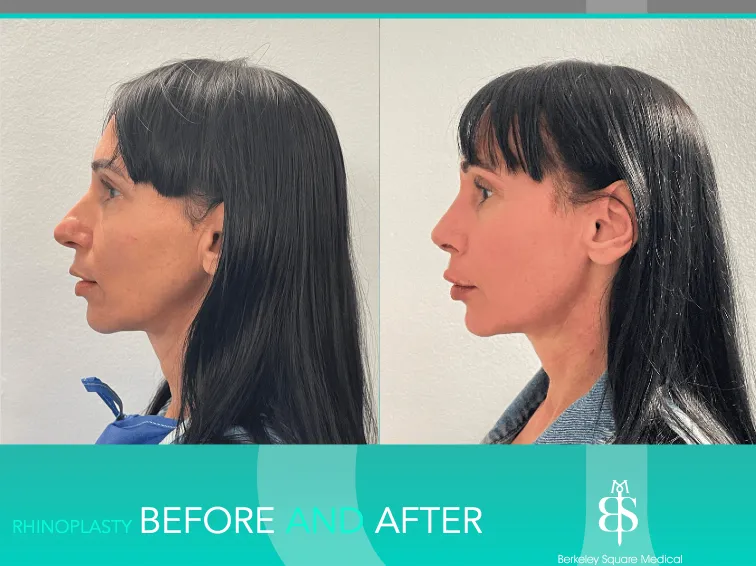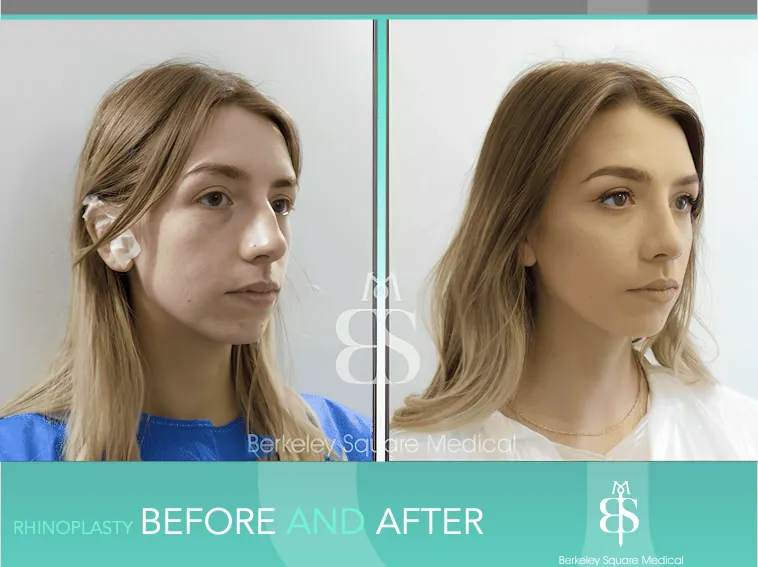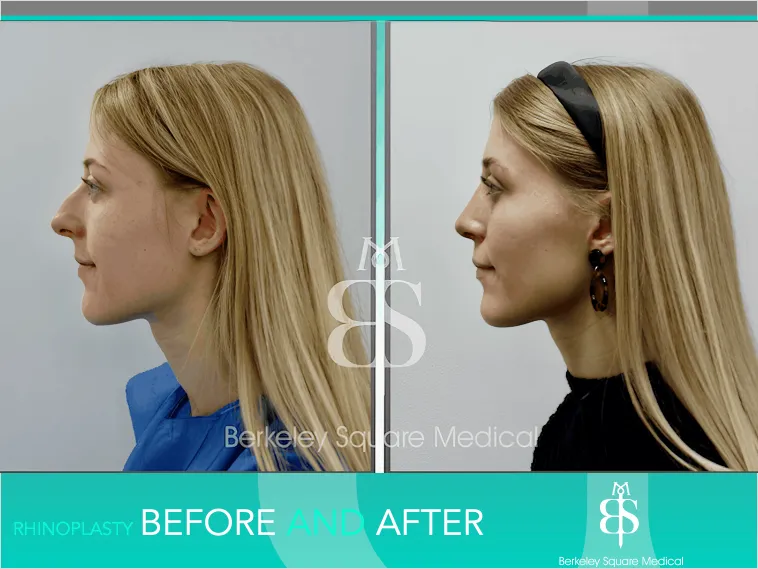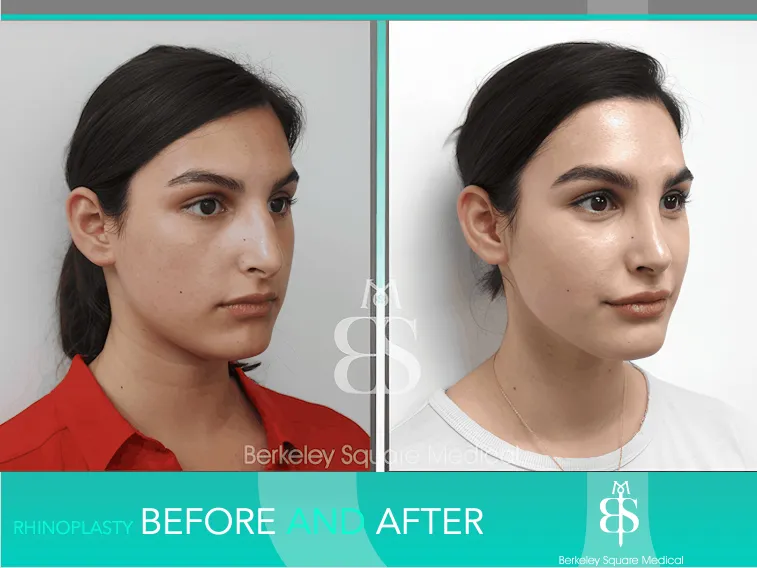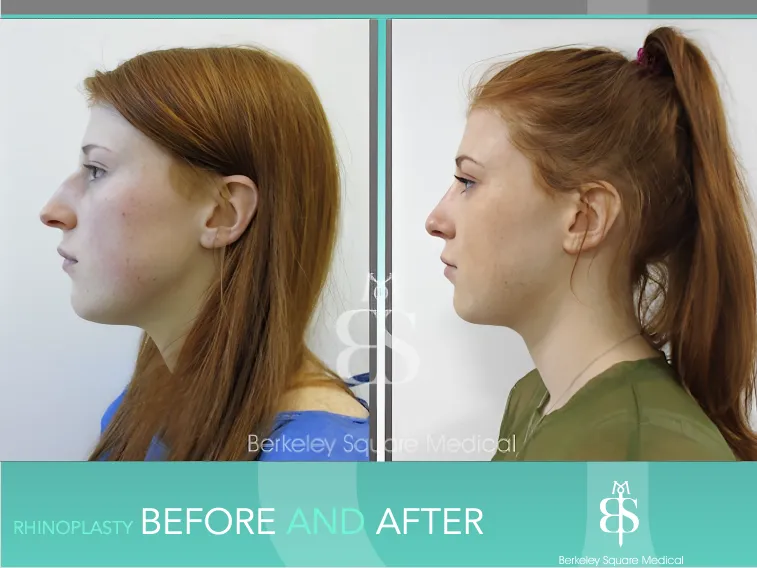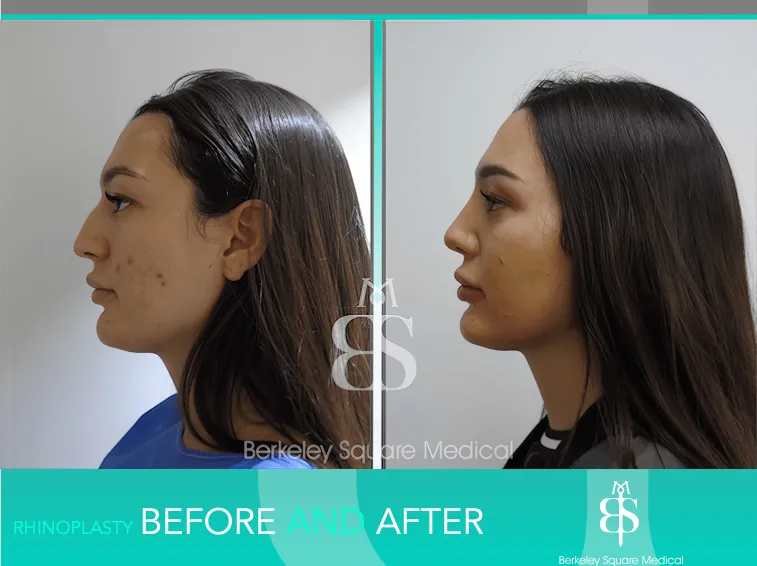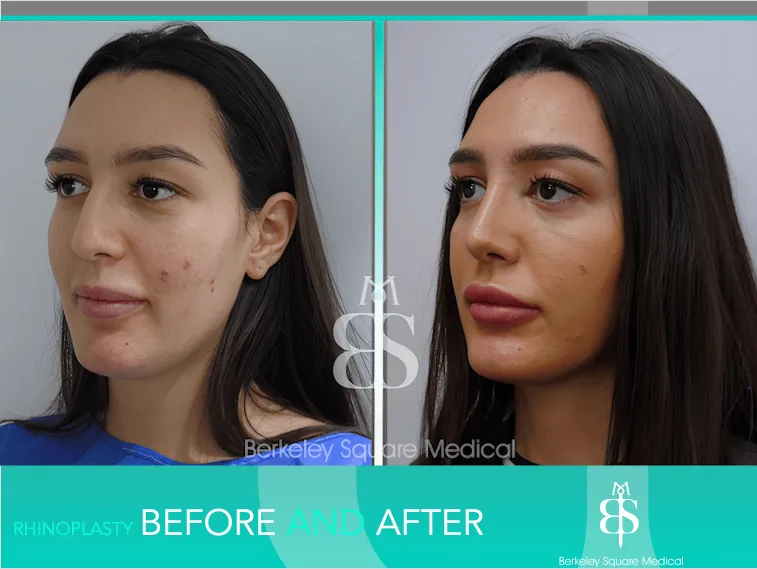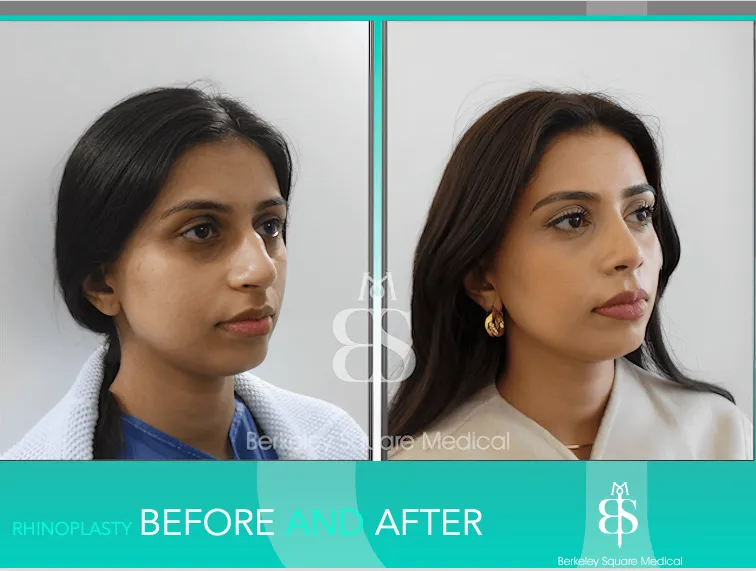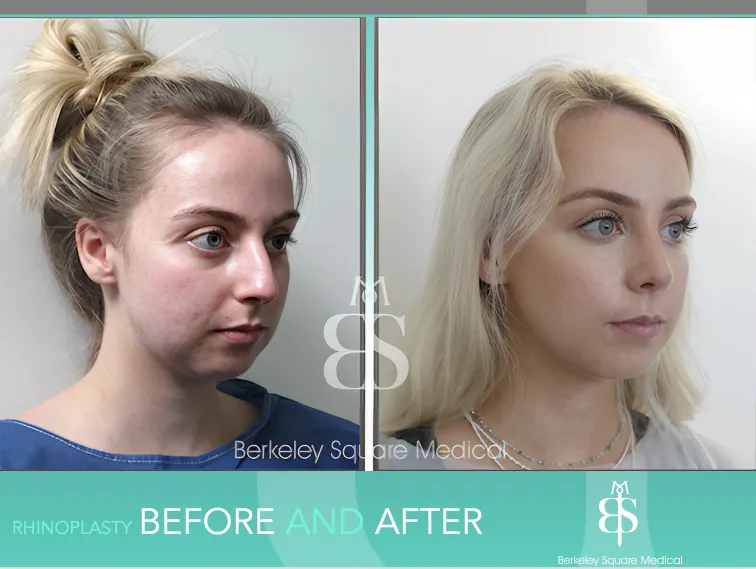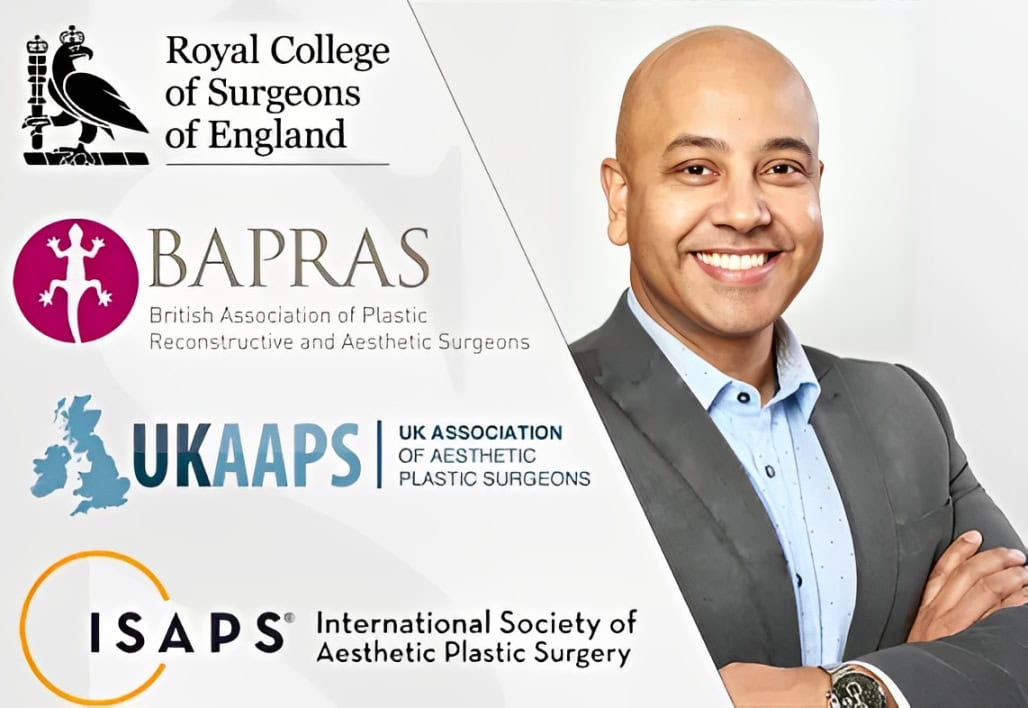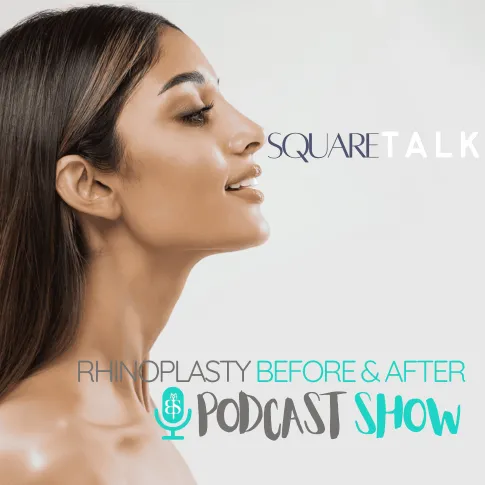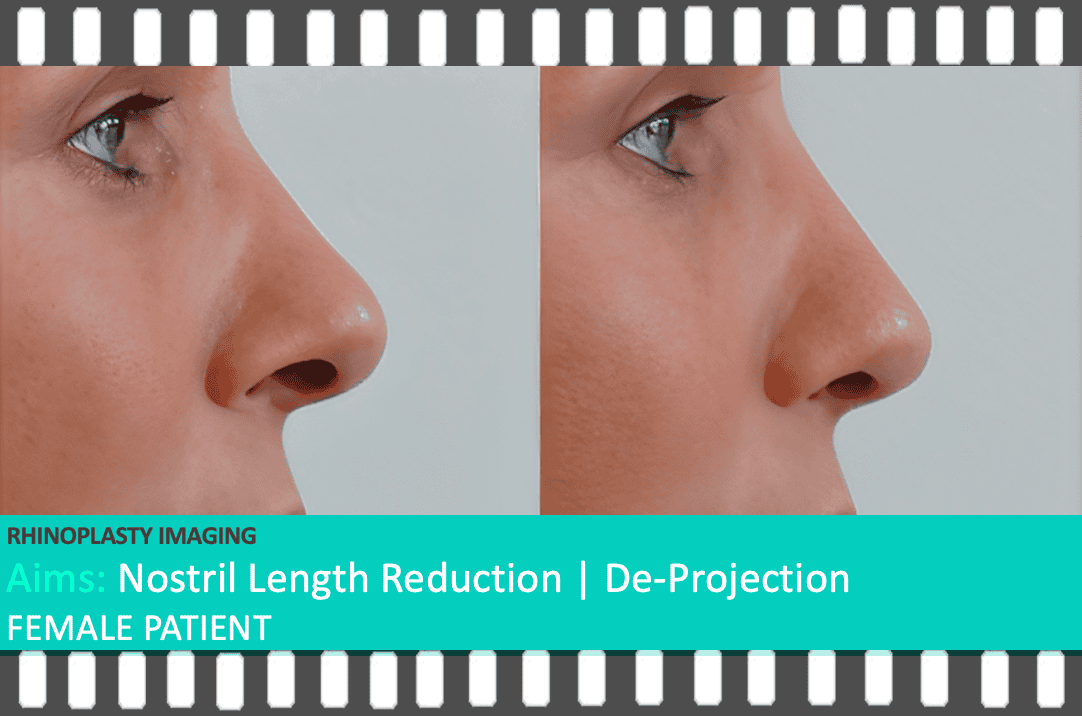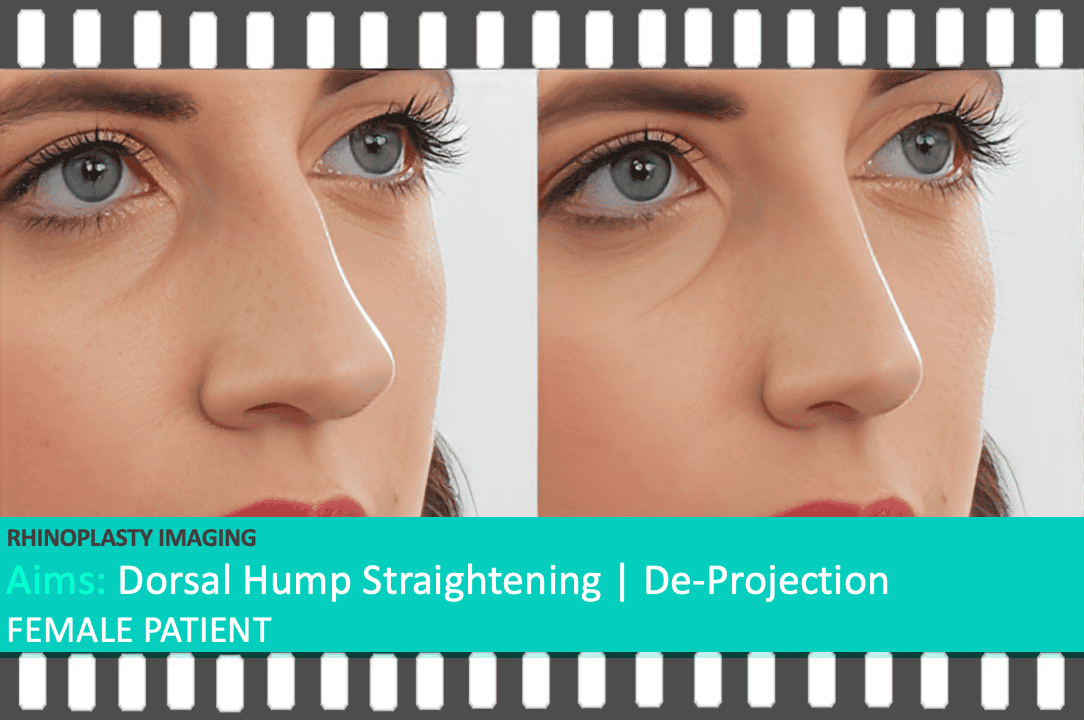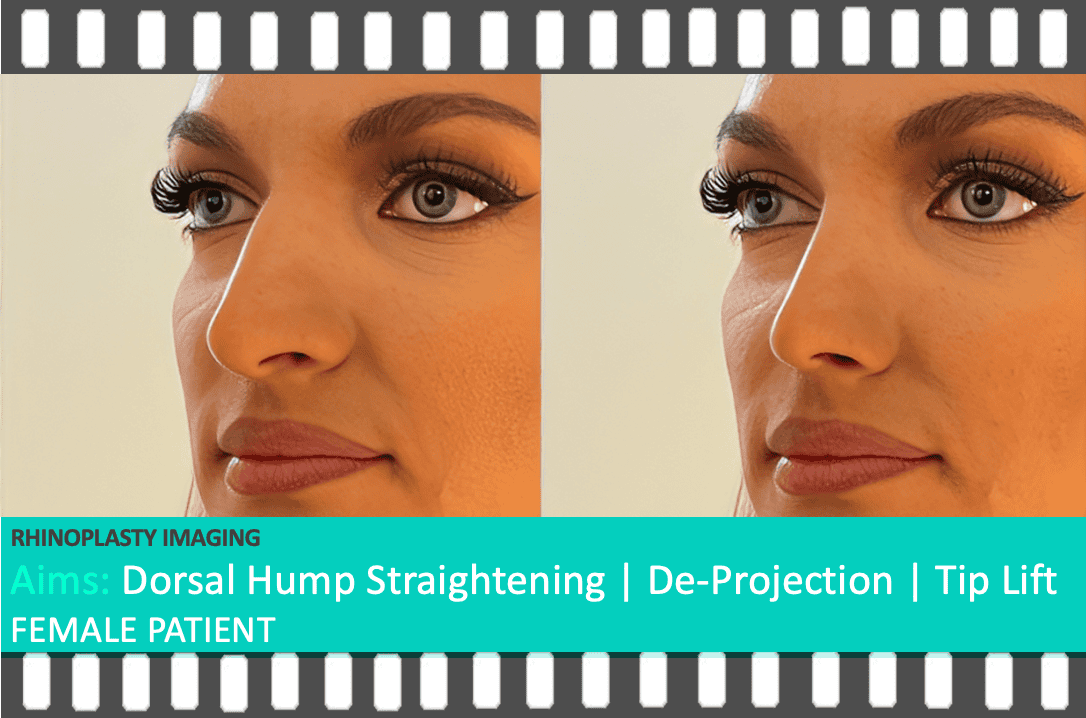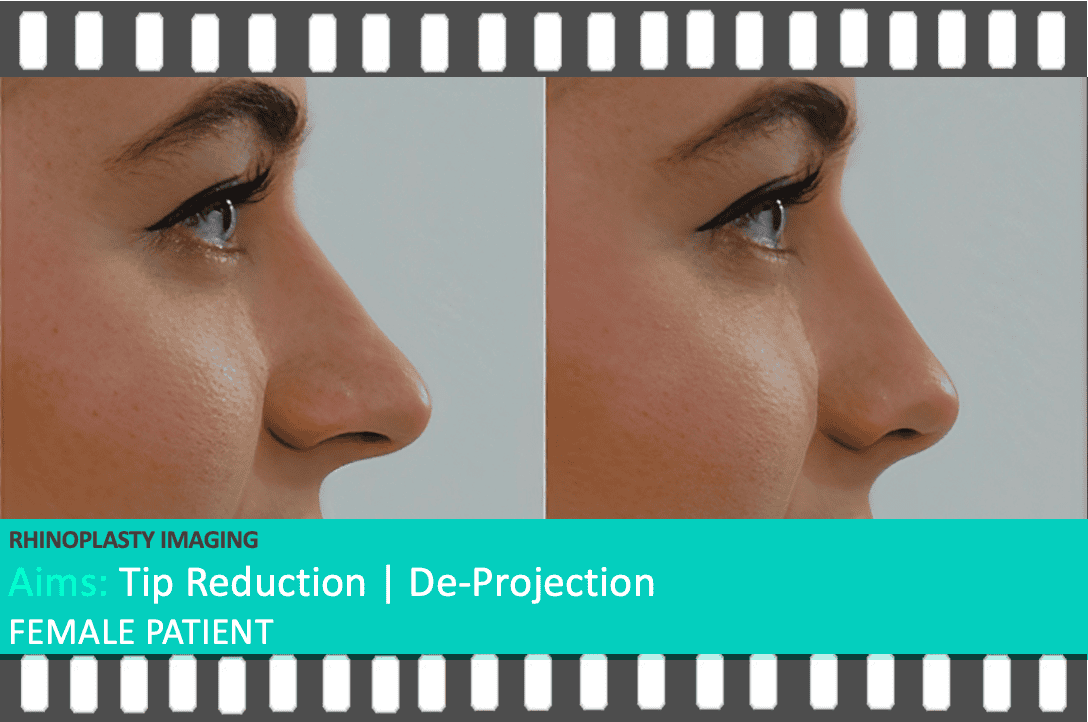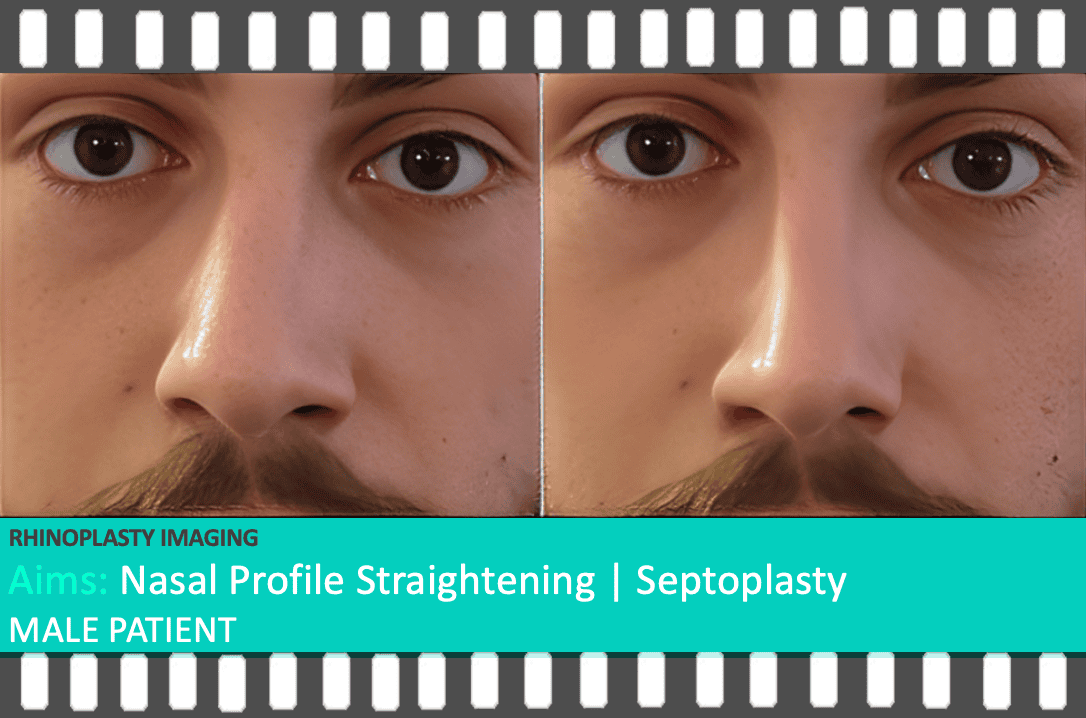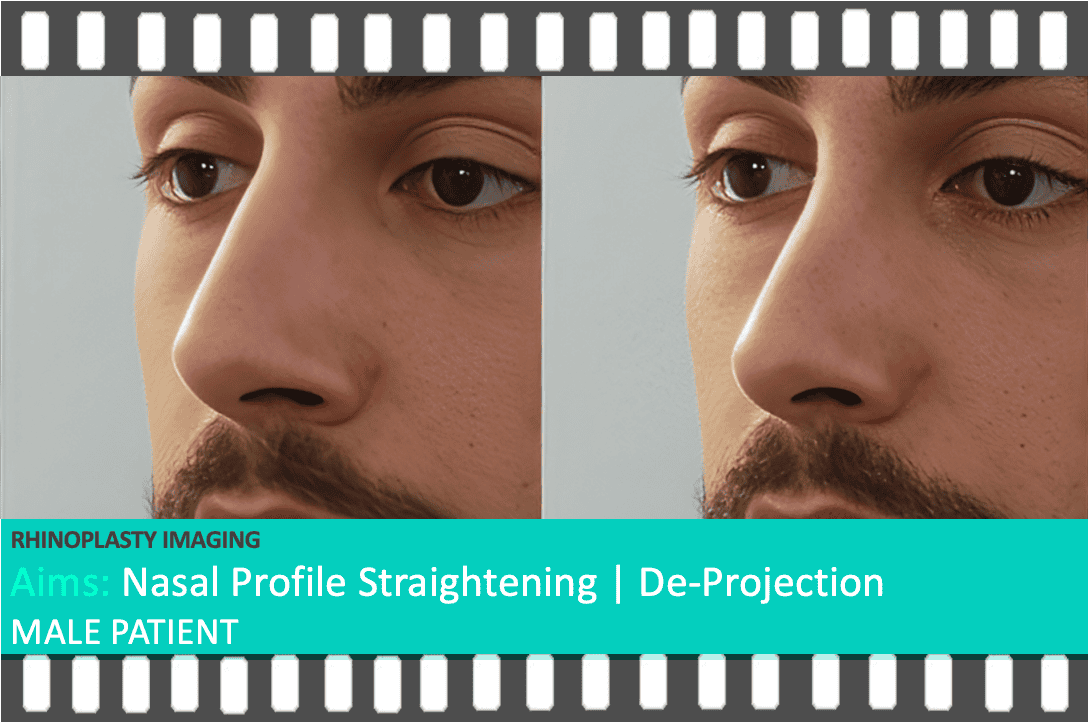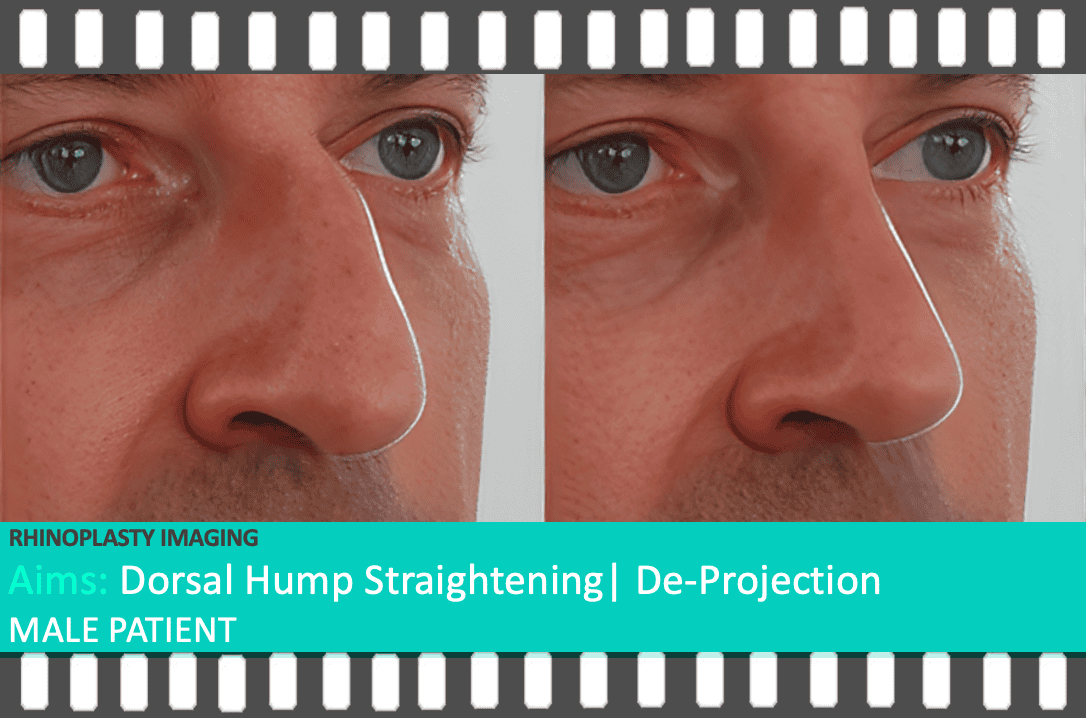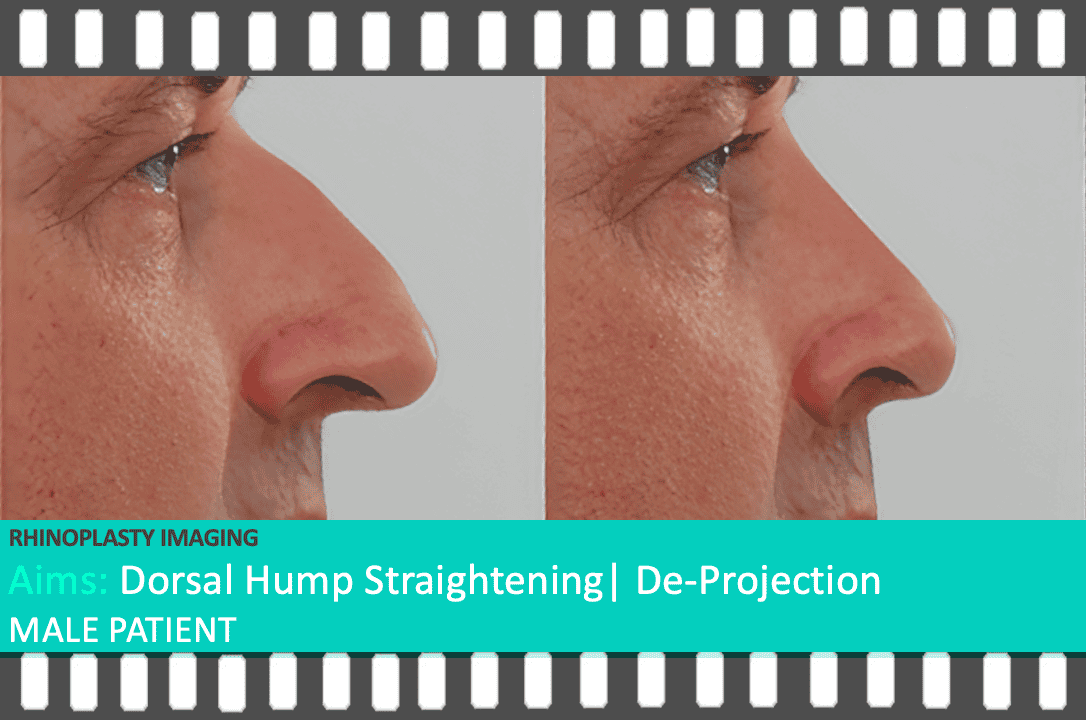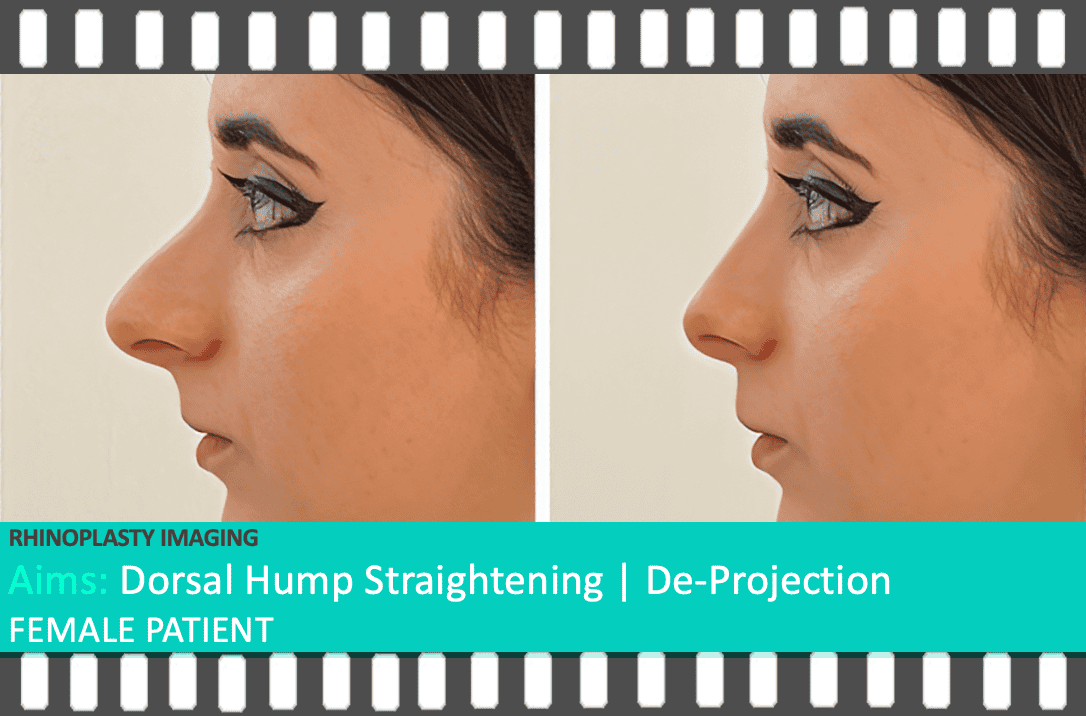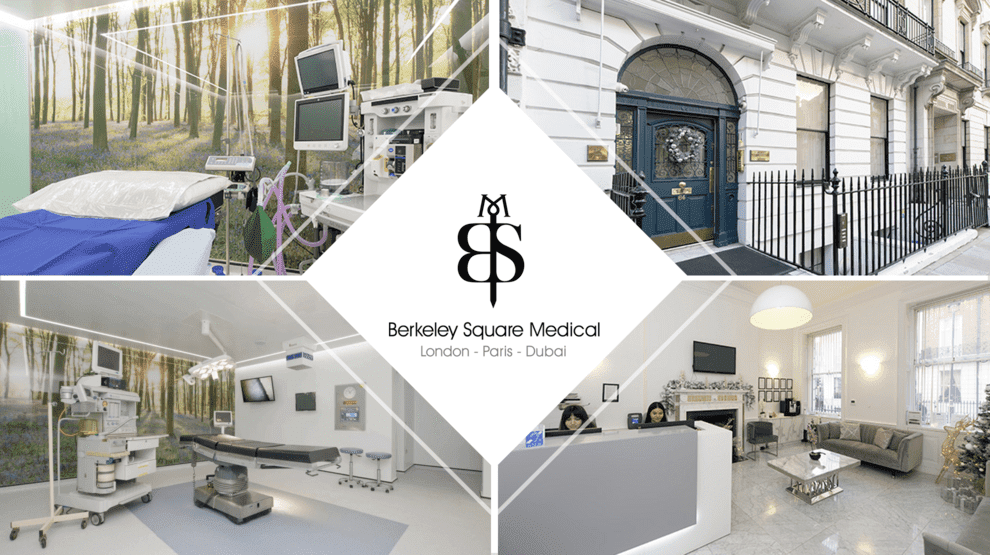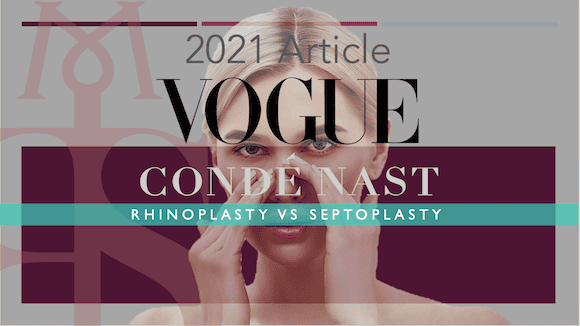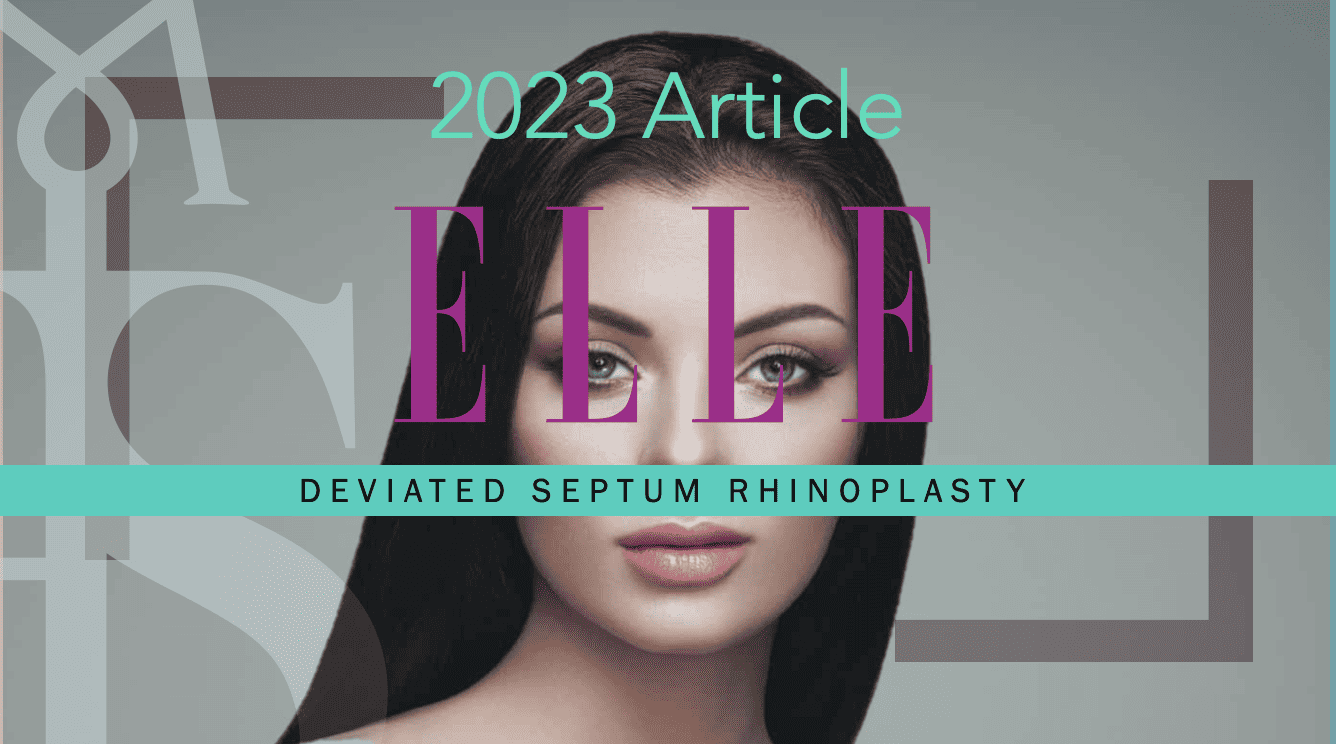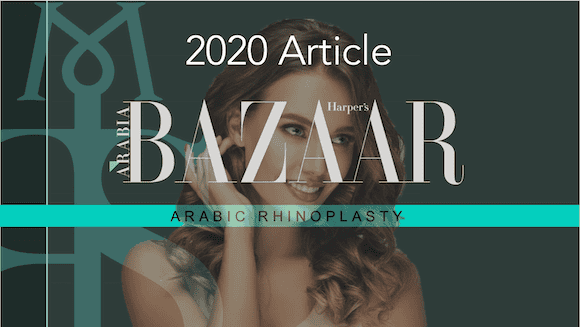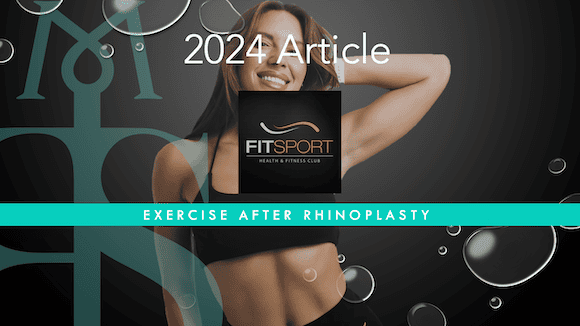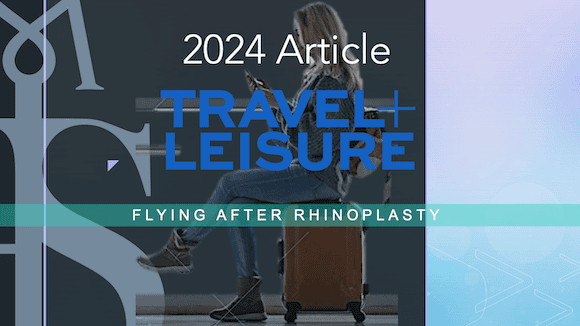How Much Does Your Rhinoplasty Cost?:
PRIMARY RHINOPLASTY COST IN LONDON
£8950.00
At Berkeley Square Medical, the cost of Your Full Rhinoplasty Surgery is set at £8950.00. This is an All-Inclusive set price for all primary Rhinoplasty patients and includes the full cost of your procedure and your £100 consultation, which is credited against the cost of your surgery. All Appointments and Aftercare Treatment are covered within your Aftercare Policy
The cost of your surgery includes the following:

|
Your Full Consultation:
£100.00 (Set Fee)
Creditable Towards Your Set Surgery Fee Included With Consultation Summary E-Letter.
|

|
TWO (2) Surgeon Consultations:
1st – In-Person or Zoom Video Option Included.
2nd – On the Date of Your Treatment Included.
|
 |
Rhinoplasty Imaging Gallery:
Front, Angle and Side Profile Gallery of the Predictive Visual Aim of Your Rhinoplasty Treatment Included.
|
 |
Pre-Operative Tests:
The Pre-Operative (MRSA) Nasal Swab Test, Essential for Ensuring Safety Before Your Surgical Procedure Included.
|
 |
Hospital & Anaesthetic Fees:
All Hospital Fees, Private Room, Dedicated Nursing Team Assigned For Your Stay Included.
|
 |
Take Home After Surgery:
All Medication And Garments Provided To Take Home After Surgery Fully Included.
|
 |
Complimentary Chauffeur Home:
Complimentary Chauffeur Drive Home After Surgery In London Included. Options For Living Outside London Included.
|
 |
24-Hour Care Post Surgery:
Online Messaging Service 24 Hrs For The First 14 days After Surgery Aftercare Guidance Included.
|
 |
Post Operative Reviews:
7-Day Post Operative Review Included.
1-3 Month Surgeon Review Included.
6-12 Month Surgeon Review Included.
|
 |
Non-Surgical Aftercare:
Any Non-Surgical Nose Contouring Treatments Included.
Any Swelling Reduction (Steroid) Treatment Included.
|
Your Nose Deserves More Than a ‘Starting From’ Price. Fixed Fees, Uncompromised Care, Trusted by Thousands.
Choosing to change your nose isn’t a casual decision, and it should never be treated like one. Your nose is not an experiment. You deserve the assurance of knowing exactly what you’re paying for, without vague “starting from” prices, hidden extras, or the anxiety of medical risks abroad. That’s why our rhinoplasty fee is fixed at £7,950.00 — inclusive of everything from your consultations and aftercare, to your chauffeur home after surgery (if you’re based in London), and 24-hour access to clinical care during recovery.
We don’t believe in upselling or catchphrases like “from £6,000” that leave you guessing. Our patients deserve certainty, expertise, and the highest level of surgical and post-operative care from award-winning consultant surgeons in accredited British hospitals. If you’re trusting someone with your face, let it be a team that treats it with the precision, respect, and dedication it truly deserves.
FINANCE PACKAGES / COSMETIC LOANS
We do not provide Cosmetic Financing for Rhinoplasty London Surgery. When considering this cosmetic surgery, we like to ensure that your Rhinoplasty cost is transparent and clear to understand. The above cost includes your completed nose job procedure with no hidden costs to consider before booking your initial consultation.
At Berkeley Square Medical, we specialise in all aspects of rhinoplasty tailored to meet your unique aesthetic and functional goals. Below, we explore the common aims of rhinoplasty, the techniques involved, and what you can expect from each procedure.
1. Irregular Nasal Tip
An irregular nasal tip can make the nose appear asymmetrical, with one side appearing larger, smaller, higher, or lower than the other. This irregularity is often due to the underlying nasal cartilage and may be influenced by genetics or injury.
Surgical Approach: Rhino Tip Surgery targets the cartilage to create a more symmetrical and proportionate appearance. Studies show that approximately 70% of patients report increased satisfaction with the aesthetics of their nose post-surgery.
2. Deviated Septum (Septal Deviation)
A deviated septum can affect both the appearance of the nose and nasal breathing. This condition occurs when the nasal bones or septum are misaligned, often inherited or resulting from previous injuries. This is known as a Septorhinoplasty
Surgical Approach: Septorhinoplasty not only corrects the crooked appearance but also improves airflow through the nasal passages. In fact, studies indicate that 80% of patients notice improved breathing after this procedure.
3. Projected Nasal Tip
An excessively projected nasal tip can give the nose an irregular appearance, often making it seem overly prominent.
Surgical Approach: Techniques to correct this include reducing the maxilla spine or trimming the nasal cartilage. In some cases, chin augmentation may also be discussed to achieve facial balance.
4. Wide Nose
Individuals with a wide nose may feel that it looks disproportionate, especially from a front-facing profile.
Surgical Approach: Rhinoplasty can reduce the width of the nose by reshaping the underlying bone structure. For patients with thick skin, skin-thinning treatments may also be recommended. It’s important to note that patients with thick skin may experience limitations on how much reduction can be achieved.
5. Depressed Nose
A depressed nasal bridge can lead to a flat appearance, often corrected through cartilage grafts.
Surgical Approach: Cartilage grafts, taken from the nasal tip or behind the ear, are used to raise the bridge’s profile, resulting in a more balanced and aesthetically pleasing appearance. This approach is particularly common in ethnic rhinoplasty for patients of Afro-Caribbean and Far-East Asian descent.
6. Nasal Hump (Dorsal Hump)
A nasal hump on the bridge is usually caused by genetic factors, leading to an undesired contour.
Surgical Approach: During surgery, the surgeon files down the bone to remove the hump. Care is taken to ensure that the nose does not appear longer post-surgery, a common pitfall for less experienced surgeons. Patients seeking a subtle curve can expect personalized recommendations during their consultation.
7. Bulbous Nose Tip
A bulbous tip can create a rounded or “fat” appearance at the end of the nose.
Surgical Approach: Our expert surgeons contour the nose by altering the underlying tip cartilage, addressing the upper, middle, and lower sections for a refined look. This technique helps achieve a more elegant and proportionate nasal tip.
8. Wide or Flared Nostrils (Alar Base Reduction)
Wide or flared nostrils can impact the overall facial harmony.
Surgical Approach: Alar Base Reduction involves incisions made between the inner nostril and columella to narrow the width of the nostril flare. This technique is especially common among patients of Latino, Afro-Caribbean, and Far-East Asian ethnicities.
9. Revision Rhinoplasty
As more patients seek rhinoplasty, we often encounter individuals unhappy with their previous results.
Reasons for Dissatisfaction:
- Misalignment of surgical goals with prior surgeons.
- Lack of experience in rhinoplasty by the previous surgeon.
- Insufficient aftercare or unrealistic expectations set before surgery.
At Berkeley Square Medical, we specialise in revision rhinoplasty to help you achieve your original desired aesthetic outcome. It’s essential to fully discuss your goals during the consultation and to bring your previous surgeon’s notes to ensure a thorough evaluation.
Your rhinoplasty consultation with Mr Taimur Shoaib is the first step towards achieving the nose shape you’ve always wanted. As a renowned rhinoplasty surgeon in the UK, Mr Shoaib has performed hundreds of successful nose reshaping surgeries, earning him a reputation for delivering natural, aesthetically pleasing results.
Whether you’re considering cosmetic nose surgery for aesthetic reasons or functional improvement, Mr. Shoaib’s approach is personalised to meet your unique goals. Here’s a breakdown of what happens during a consultation to help you feel confident and informed about the process.
Step 1: What Makes You Self Conscious or Unhappy About Your Nose? A Comprehensive Discussion of Your Goals
Your consultation starts with an in-depth conversation about your reasons for seeking rhinoplasty. Whether you’re looking to correct a nasal hump, narrow your nostrils, or improve the appearance of your nose tip, Mr Shoaib will take the time to understand your goals and expectations.
Did you know? Around 90% of patients opt for rhinoplasty to improve the appearance of their nose, while the remaining 10% seek it to correct breathing issues or repair damage caused by injury.
Step 2: Medical History and Nasal Assessment
To ensure you are a suitable candidate for rhinoplasty, Mr Shoaib will review your medical history. This includes any previous surgeries, medications, and underlying health conditions. Your nasal structure and skin type will also be assessed to determine what kind of rhinoplasty technique is most appropriate for you, whether it’s a closed rhinoplasty (no external scarring) or an open rhinoplasty (small incision at the base of the nose).
Important Fact: About 95% of rhinoplasty procedures can be performed using the closed technique, which minimizes visible scarring.
Step 3: Physical Examination and Facial Analysis
Mr. Shoaib will then conduct a physical examination of your nose. This includes evaluating the bone structure, nasal cartilage, and skin thickness. The goal is to assess the balance between your nose and other facial features.
Tip: Your consultation is the perfect opportunity to discuss any specific concerns about your nose shape, breathing difficulties, or overall facial symmetry. Mr. Shoaib will provide a tailored treatment plan to address all of these issues.
Step 4: Customised Surgical Plan
Based on your goals, facial structure, and medical assessment, Mr Shoaib will develop a customised rhinoplasty plan for you. This will include the surgical technique, incision placement, and expected recovery time. He will walk you through the details of the surgery, including the potential risks and benefits. You will also have the chance to ask any questions you may have about the procedure.
Statistic: In the UK, rhinoplasty has a 91% satisfaction rate, making it one of the most popular and trusted cosmetic procedures for facial enhancement.
Step 5: Setting Realistic Expectations
One of the most important aspects of your consultation is setting realistic expectations for your rhinoplasty results. Mr Shoaib will explain that while rhinoplasty can greatly enhance your appearance, it’s essential to have a clear understanding of what’s achievable based on your facial anatomy. He will also emphasise that full results can take up to 12 months to achieve, as swelling gradually subsides over time.
Step 6: Rhinoplasty Aftercare and Recovery Discussion
A significant part of your consultation will focus on aftercare and what to expect during your recovery. Mr Shoaib will outline the healing timeline, explain how to care for your nose post-surgery, and provide advice on managing any discomfort. He will also inform you about follow-up appointments to ensure your recovery progresses smoothly and that you achieve the desired outcome.
Did you know? Roughly 85% of swelling resolves within the first 3-months, but it can take up to a year for the nose to settle into its final shape.
Step 7: Next Appointment with Our Clinical Team
Following your consultation with Mr Shoaib, you will have a second appointment with one of his dedicated clinical team members to discuss the next steps in your rhinoplasty journey at the same consultation visit. During this meeting, you will receive detailed information about the cost of the surgery and what it includes. Our team will also go over the required pre-operative tests, including the MRSA nose swab, which is a routine test performed for all patients.
In this session, you’ll also have the opportunity to review before and after photos of previous rhinoplasty patients to give you a clearer idea of the results you can expect. If you are interested in rhinoplasty imaging, where 3d simulations of your nose can be created, we will discuss the benefits of electing this service. Additionally, if you already have surgery dates in mind, this appointment is an opportunity to confirm your preferred treatment.
This is a part of your journey where you can decide whether this procedure is right for you and understand the expertise of your surgeon in how he will achieve the best results for you. We aim for proportion to the nose, which ultimately means we aim for a natural final shape in both female and male rhinoplasty patients.
At Berkeley Square Medical, we make sure the entire process is seamless and comforting, ensuring you’re fully informed at every step. Here’s what you can expect on the day of your rhinoplasty surgery, from the moment you arrive at the hospital until your discharge.
1. Arriving at the Hospital
On the day of your surgery, you’ll be welcomed at our private hospital in Harley Street, London. You’ll arrive at the hospital at the scheduled time and be guided through the admission process. Our friendly nursing team will check you in and guide you to your private room, where you can relax before the procedure.
2. Preoperative Consultation and Photos
Before surgery begins, you’ll meet with your rhinoplasty surgeon, Mr. Taimur Shoaib, for another consultation. This is an opportunity to discuss any final questions you might have about the procedure and the aims of the aesthetic outcome. At this point, your surgeon will also go over the surgical plan and confirm the technique that will be used—either open rhinoplasty or closed rhinoplasty, depending on your case. Once you are ready to proceed, your consent process can be completed by your surgeon.
Next, preoperative photos will be taken. These photos serve as a baseline for your post-surgery results, allowing you and the surgeon to see the changes made during your full recovery from the treatment.
3. Meeting the Anaesthetist
After the consultation with Mr Shoaib, you’ll meet with your anaesthetist to discuss the general anaesthesia that will be used during the surgery. The anaesthetist will explain the process, answer your questions, and review your medical history to ensure the anaesthesia is administered safely. Once everything is reviewed, you’ll be asked to sign the consent forms for both the surgery and anaesthesia, ensuring you fully understand and are comfortable with the procedures.
4. Going into Surgery
After meeting with your surgical team, you’ll be escorted to the operating room. At this point, the anaesthetist will begin administering general anaesthesia, which will ensure you’re completely unconscious and pain-free throughout the procedure.
Depending on the treatment of your rhinoplasty, your surgeon will use one of two techniques:
Closed Rhinoplasty Surgery
If you’re having a closed rhinoplasty, all incisions will be made inside your nostrils. This technique is ideal for patients requiring minor to moderate adjustments, such as refining the nasal tip, removing a nasal hump, straightening of your nasal profile deviated septum, and making your nose smaller by de-projecting your nose. The procedure is discreet, with no visible scarring, and often leads to a quicker recovery and fewer complications. Read here to gain more insight into the Advantages and Disadvantages of Closed Rhinoplasty.
Open Rhinoplasty Surgery
For more complex cases, your surgeon may opt for open rhinoplasty. In this technique, a small incision is made across the columella (the skin between the nostrils), allowing the surgeon full access to the nasal structure. This is particularly beneficial for patients requiring significant reshaping, correction of previous trauma, revision rhinoplasty or reconstructive rhinoplasty. Read here to gain more insight into the Advantages and Disadvantages of Open Rhinoplasty.
Both techniques are meticulously performed by your surgeon to ensure that the results align with your goals, whether you’re seeking aesthetic changes or functional improvements such as better breathing.
5. Post-Surgery and Recovery
Once the surgery is complete, you’ll be transferred to your private recovery room, where you’ll wake up under the care of our dedicated medical team. You may feel groggy from the general anaesthesia, and some very mild discomfort or swelling around the nose is normal at this stage.
During your recovery, you’ll be closely monitored to ensure everything is progressing smoothly. Patients typically experience minimal pain, which can be easily managed with medication. You’ll be given nasal padding to absorb any light bleeding that may occur in the first 24 hours.
6. Discharge and Aftercare
Once you’re fully awake, the medical team is satisfied with your recovery and you have eaten, you’ll be given detailed aftercare instructions. This includes information about how to manage swelling, bruising, and any discomfort and any medication for you to take home. Your nasal packing will also be removed prior to leaving the hospital.
7. Travel Home
At Berkeley Square Medical, we ensure that all rhinoplasty patients are chauffeur-driven home (within London/Greater London) as part of our aftercare service to make your recovery journey as comfortable as possible. This is a complimentary service.
Comprehensive Rhinoplasty Aftercare: What to Expect During Your Recovery
At Berkeley Square Medical, we are one of the few clinics in the UK to offer 24-hour online messaging services dedicated to supporting your rhinoplasty recovery. Our expert team, including two specialised rhinoplasty clinicians, is available around the clock to assist you throughout your healing process, ensuring a smooth recovery.
Before You Leave Our Clinic: Preparing for a Comfortable Recovery
Your comfort and well-being are our top priorities. Before you are discharged from our clinic, your rhinoplasty surgeon and nursing team will provide detailed aftercare instructions, including information on any pain medications and antibiotics if necessary. We also ensure that all nasal packing is completely removed before you leave, so you’re free to breathe more easily.
Additionally, to make your journey home as stress-free as possible, we offer a complimentary chauffeur service for all rhinoplasty patients within London and Greater London, ensuring you arrive home safely after your surgery.
The First 24 Hours After Rhinoplasty: Swelling & Bruising
In the first 24 hours post-surgery, you may feel tired due to the general anaesthesia and the overall length of the procedure. Expect mild swelling of the nose and nasal congestion, which is perfectly normal. Some slight breathing difficulties are common during this stage, as well as minor bleeding. Around 90% of patients experience some nasal blockage and light bleeding in the first 24 hours, but this typically subsides with proper care. We provide padding to absorb any discharge.
The First 3 Days After Surgery: Managing Swelling and Bruising
Within the first 72 hours, you will notice swelling and bruising peak. This is part of the natural healing process, with around 80% of patients experiencing maximum swelling during this period. However, you’ll feel significantly better after the first two days, with more energy to resume light indoor activities.
Pain and discomfort are usually minimal, and most patients report that the discomfort from breathing through the mouth is the most challenging aspect. Over-the-counter medications are typically sufficient to manage any pain.
Day 5: First Signs Of Visible Improvement
By day 5, the healing process is well underway. You’ll see a noticeable reduction in swelling, and any bruising will have faded to a yellowish hue. Most patients report a significant improvement in their appearance, with around 75% of the initial swelling subsiding by this stage.
Day 7: First Post-Operative Review
On day 7, you’ll return to the clinic for your first post-operative check-up. During this visit, our nursing team will remove your nasal splint and any external stitches. If you’ve had a closed rhinoplasty, only two micro-stitches will need to be removed. Soaking your nasal splint the night before can make removal more comfortable.
All internal nasal stitches are dissolvable, so you won’t need to worry about additional stitch removal. Our team will check for any remaining swelling and provide guidance on how to further improve your recovery. International patients are generally cleared to travel by air at this stage unless otherwise agreed with your surgeon.
Days 8-10: Resuming Light Activity
At this point, your nose may slightly widen after the removal of the splint, but it will return to its normal shape within 24-48 hours. You will start noticing a better-defined nasal shape as tip swelling begins to reduce. Patients can typically return to work by day 10, and 80% report no visible signs of surgery by this point. Light gym and cardio activities can also be resumed in moderation.
1 Month After Surgery: Continued Progress
After one month, your nose will continue to refine in both shape and size. It’s advisable to track your progress on a 6-weekly basis rather than daily, as daily observation can cause unnecessary anxiety. By this stage, approximately 90% of the swelling will have subsided, with only minor changes remaining as your nose fully heals.
3 Months After Surgery: A Key Checkpoint
At approximately the 3-month mark, you’ll attend your second post-operative appointment. During this review with your surgeon, we will take your first set of post-operation photos and compare them to your pre-surgery images. This assessment helps us evaluate how your bones are healing, the reduction in swelling, and the overall progress of your recovery. We will also advise on any further treatments that may enhance both the aesthetic and functional outcomes of your rhinoplasty.
6-12 Months After Surgery: Assessing Long-Term Results
Your third post-op review at 6-12 months will involve another detailed comparison of your progress. By now, your nose will be much closer to its final shape, and any subtle changes in swelling or bone structure will be documented with another set of photos. Around 95% of patients see the majority of their results at this stage, with only minor internal healing still ongoing.
Full recovery from rhinoplasty can take up to a year, and in some cases, internal healing may continue slightly beyond this period. During this final review, we assess the overall results, including any remaining scar healing and swelling reduction. By now, your new nose should be fully settled, providing you with long-lasting, natural-looking results.
Rhinoplasty Surgery Risks:
Understanding the Complications of Nose Reshaping Surgery by Berkeley Square Medical.
While a Rhinoplasty can enhance both appearance and functionality, it’s essential to be aware of the potential rhinoplasty surgery risks before deciding to proceed. At Berkeley Square Medical, our goal is to inform patients about the possible complications of rhinoplasty so they can make well-informed decisions about their health and appearance.
Here’s a breakdown of the most common risks of rhinoplasty, along with approximate statistics to give you a clearer picture.
1. Swelling and Bruising (Very Common – 80% of Patients)
Swelling and bruising around the nose and eyes after a Rhinoplasty are the most common side effects of nose surgery, affecting roughly 80% of patients. While this can last for a couple of weeks, it typically subsides after the first week. Following post-operative care instructions closely can help reduce the severity and duration of swelling.
2. Breathing Difficulties (Uncommon – 5% of Patients)
Some patients experience breathing difficulties after rhinoplasty, especially if there’s a significant change to the nasal structure. This complication affects around 5% of patients, or 1 in 20, but it is often temporary. In rare cases, further adjustments may be needed to improve breathing.
3. Infection (Rare – 1% of Patients)
Infection after a Rhinoplasty is an uncommon risk, occurring in only about 1 in 1,000 cases. At Berkeley Square Medical, we take every precaution to maintain sterile conditions and reduce the risk of infection. If an infection does develop, it can usually be treated with antibiotics, but in rare cases, further surgery may be required.
4. Nosebleed (Very Common – 90% of Patients)
Nosebleeds after Rhinoplasty are a very common occurrence immediately after the surgery, affecting roughly 9 in 10 patients, especially in the first few days. These are typically mild and easily managed, but in rare cases of prolonged or heavy bleeding, medical attention may be needed.
5. Scarring (Rare – 1% of Patients)
Scarring from rhinoplasty is usually minimal, especially with closed procedures where incisions are made inside the nose as is the case in closed rhinoplasty. For open rhinoplasty, a small scar at the base of the nose may occur. Approximately 1 in 100 patients experience noticeable scarring, but with proper care, scars generally fade over time.
6. Numbness (Very Common – 90% of Patients)
Temporary numbness in the nasal area is quite common, affecting around 90% of patients. This typically resolves within a few hours to days, but in rare cases, long-term or permanent numbness may occur, affecting about 1 in 1000 patients. Local Anaesthesia is commonly injected into the nasal tip during surgery to manage any discomfort.
7. Unsatisfactory Aesthetic Results (Uncommon – 3% of Patients)
While most patients are happy with the outcome of their surgery, around 3% (3 in 100) may feel their results don’t meet their expectations. This can be due to factors like the unpredictability of the healing process. In some cases, either non-surgical treatments or a revision rhinoplasty may be considered to address any issues.
8. Allergic Reactions (Very Rare – 0.02% of Patients)
Allergic reactions to anaesthesia, medication, or surgical materials are incredibly rare, affecting fewer than 1 in 5,000 patients. Before surgery, it’s important to inform your surgeon of any allergies to minimise this risk. At Berkeley Square Medical, our Consultant Anaesthetist and team will always carry reversal medications to counteract any allergic reaction.
9. Septal Perforation (Very Rare – 0.05% of Patients)
One of the more serious complications of rhinoplasty is septal perforation (a hole in the nasal septum), which can occur in about 1 in 2,000 cases. This may lead to persistent nosebleeds or breathing problems and may require additional surgery to correct.
How Berkeley Square Medical Minimises Rhinoplasty Risks
At Berkeley Square Medical, your safety is our top priority. Our experienced Consultant Surgeons and Anaesthetists are all on the Specialist Register with the General Medical Council and use the latest surgical techniques and a comprehensive pre-operative evaluation to ensure you are an ideal candidate for rhinoplasty. We also provide detailed aftercare instructions to reduce the risk of complications and promote smooth healing.
Final Thoughts on Rhinoplasty Risks
While rhinoplasty can offer life-changing results, it’s important to understand the risks involved. By choosing Berkeley Square Medical, you’ll be in the hands of experts committed to minimising complications and achieving the best possible outcome.
If you’re considering rhinoplasty and want to learn more about the benefits and risks, contact us today for a consultation with one of our experienced surgeons.


